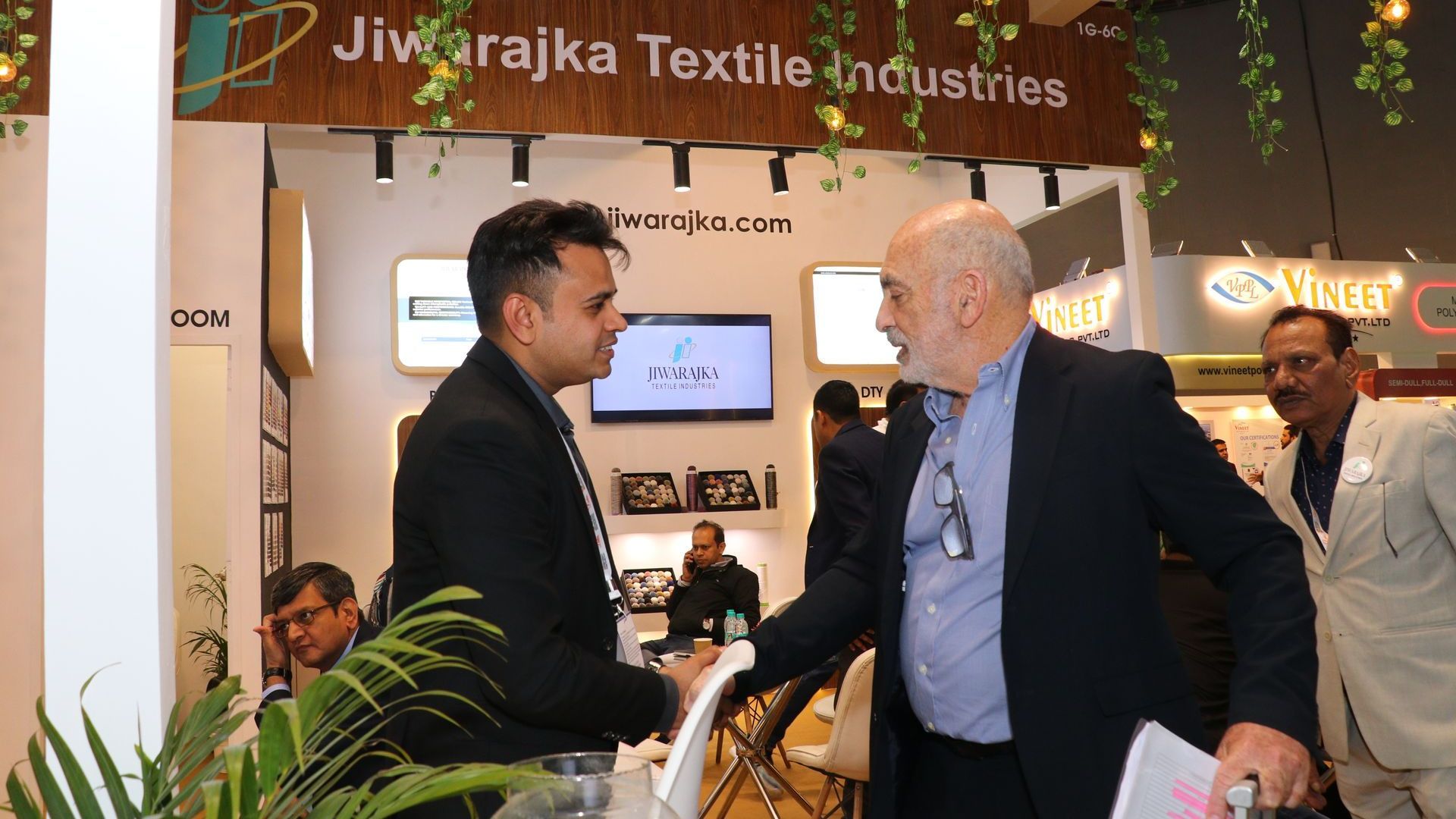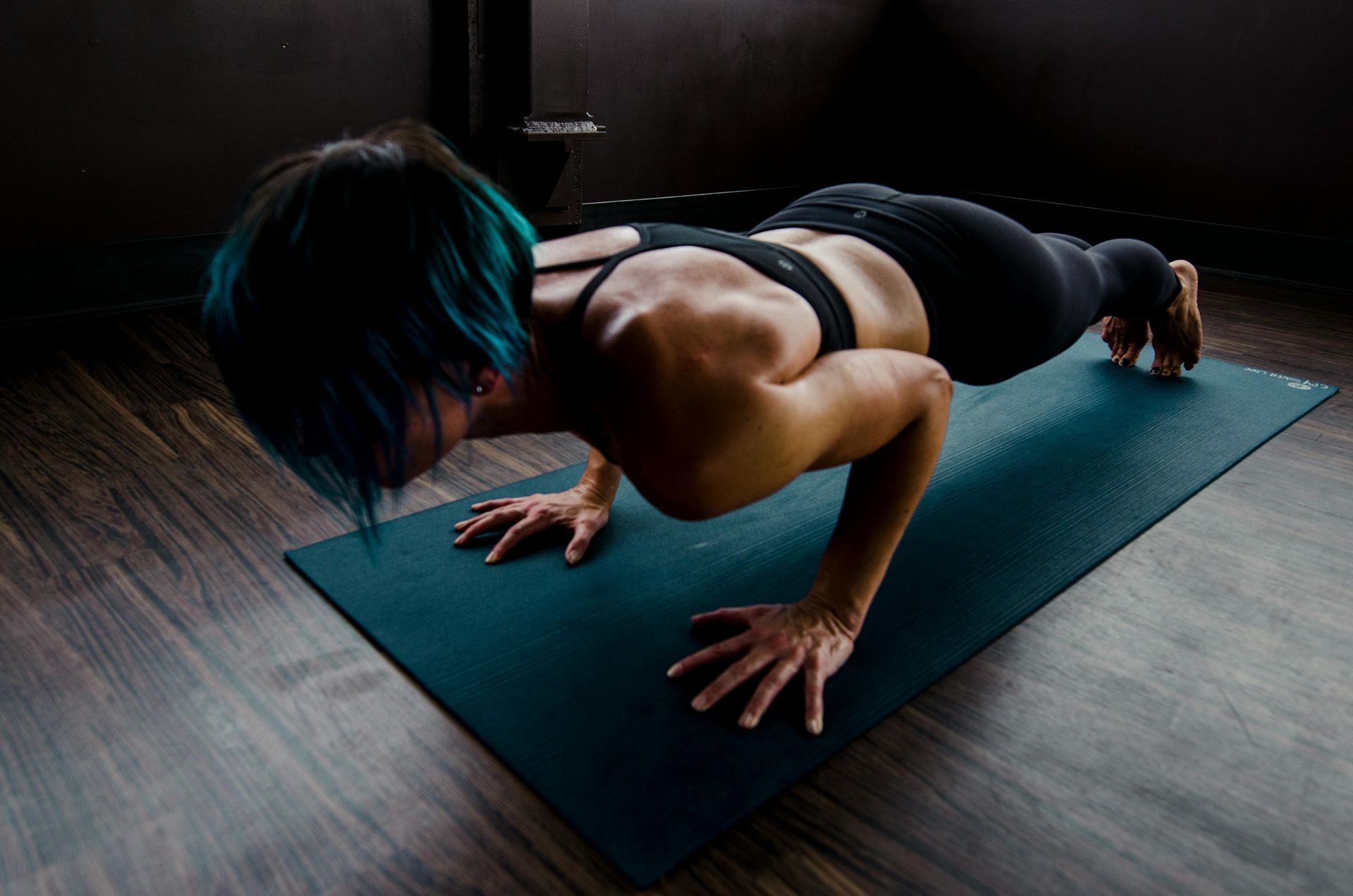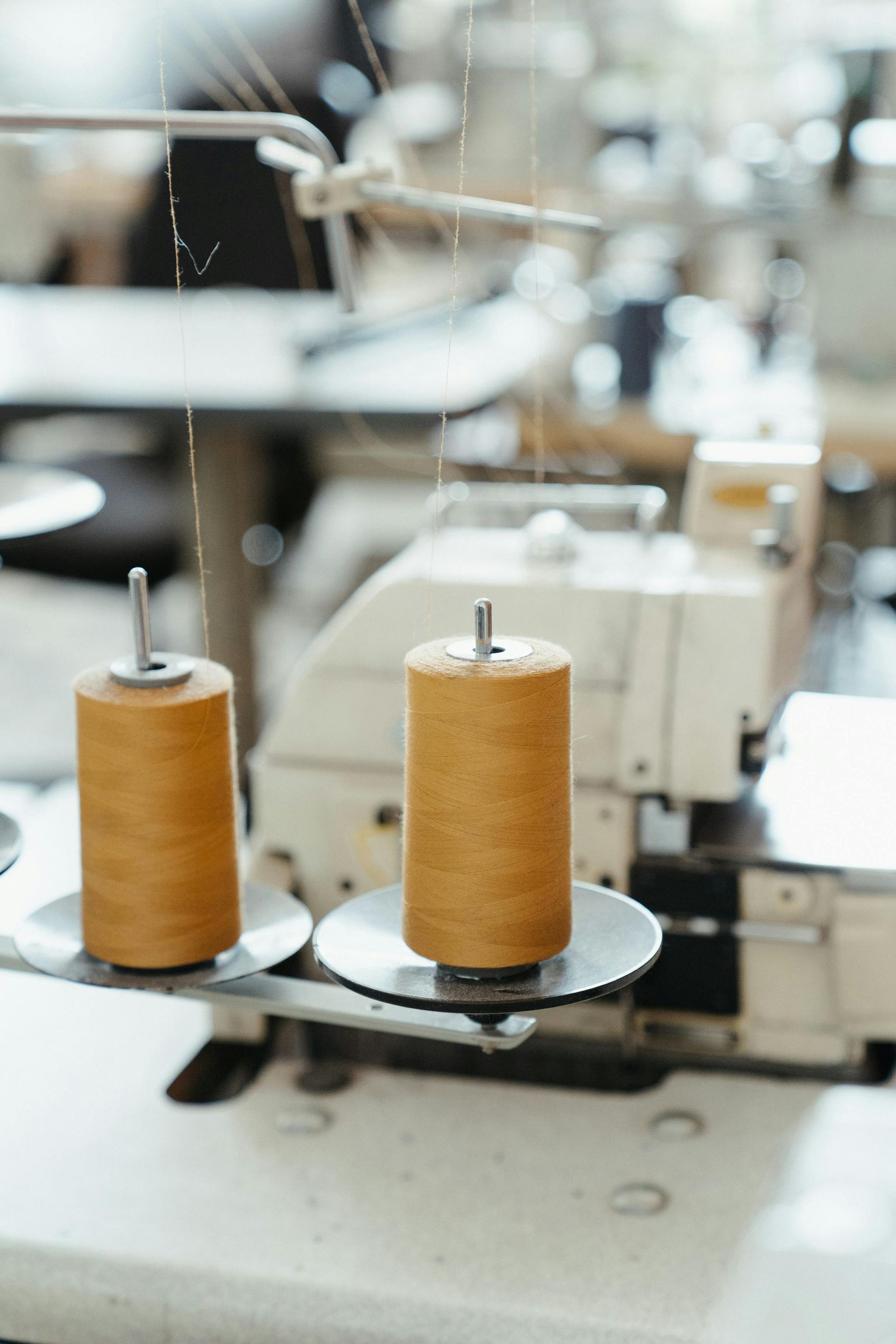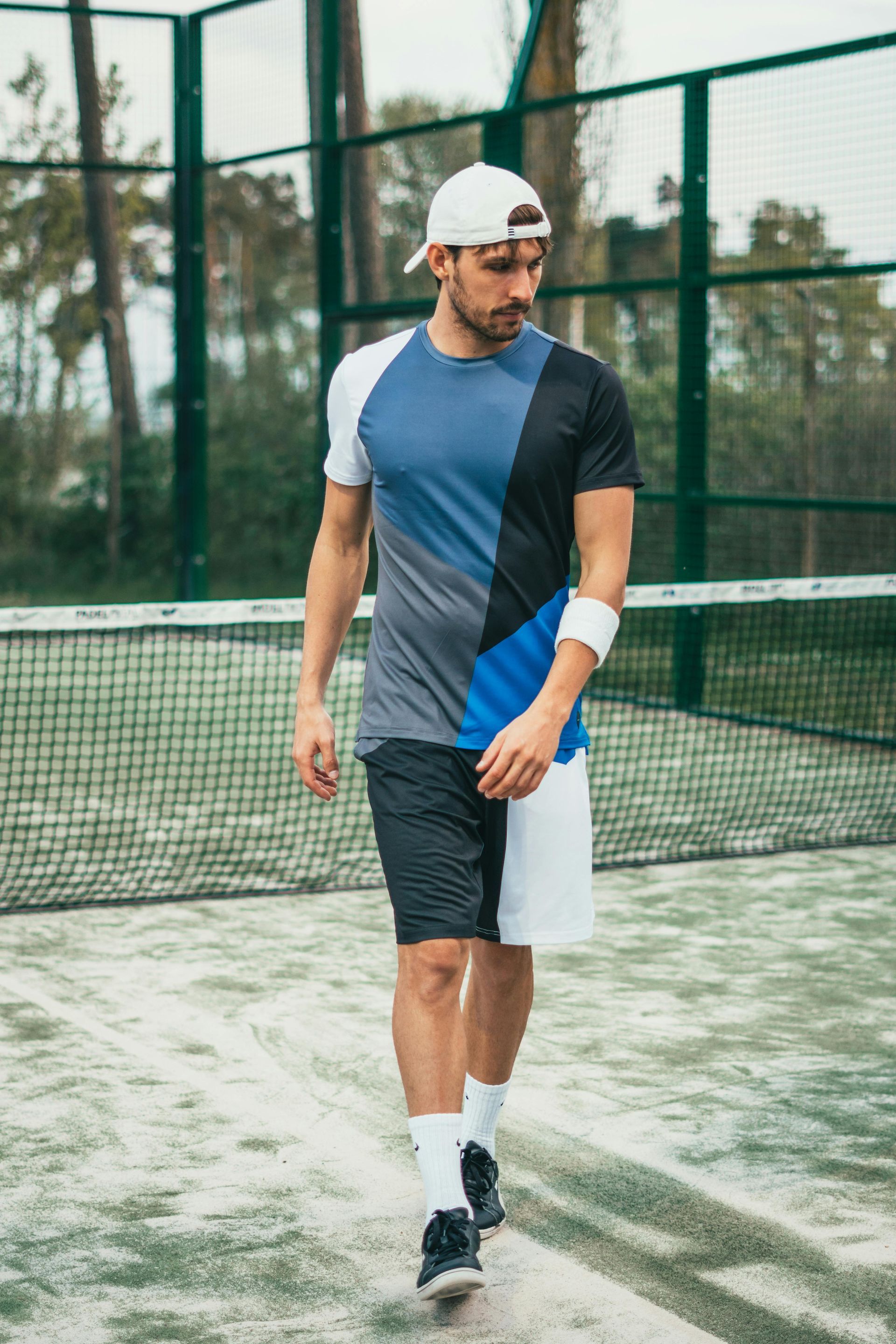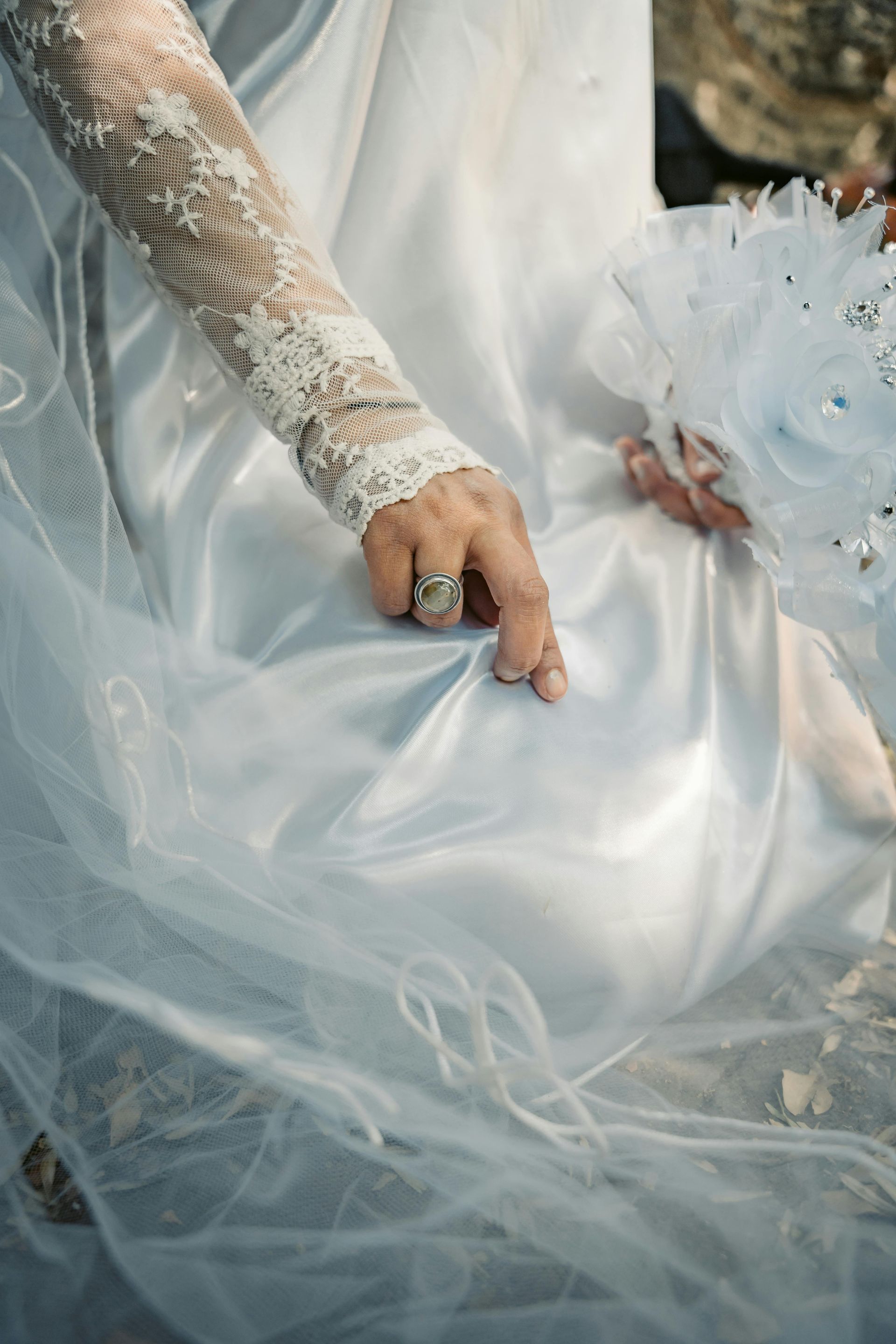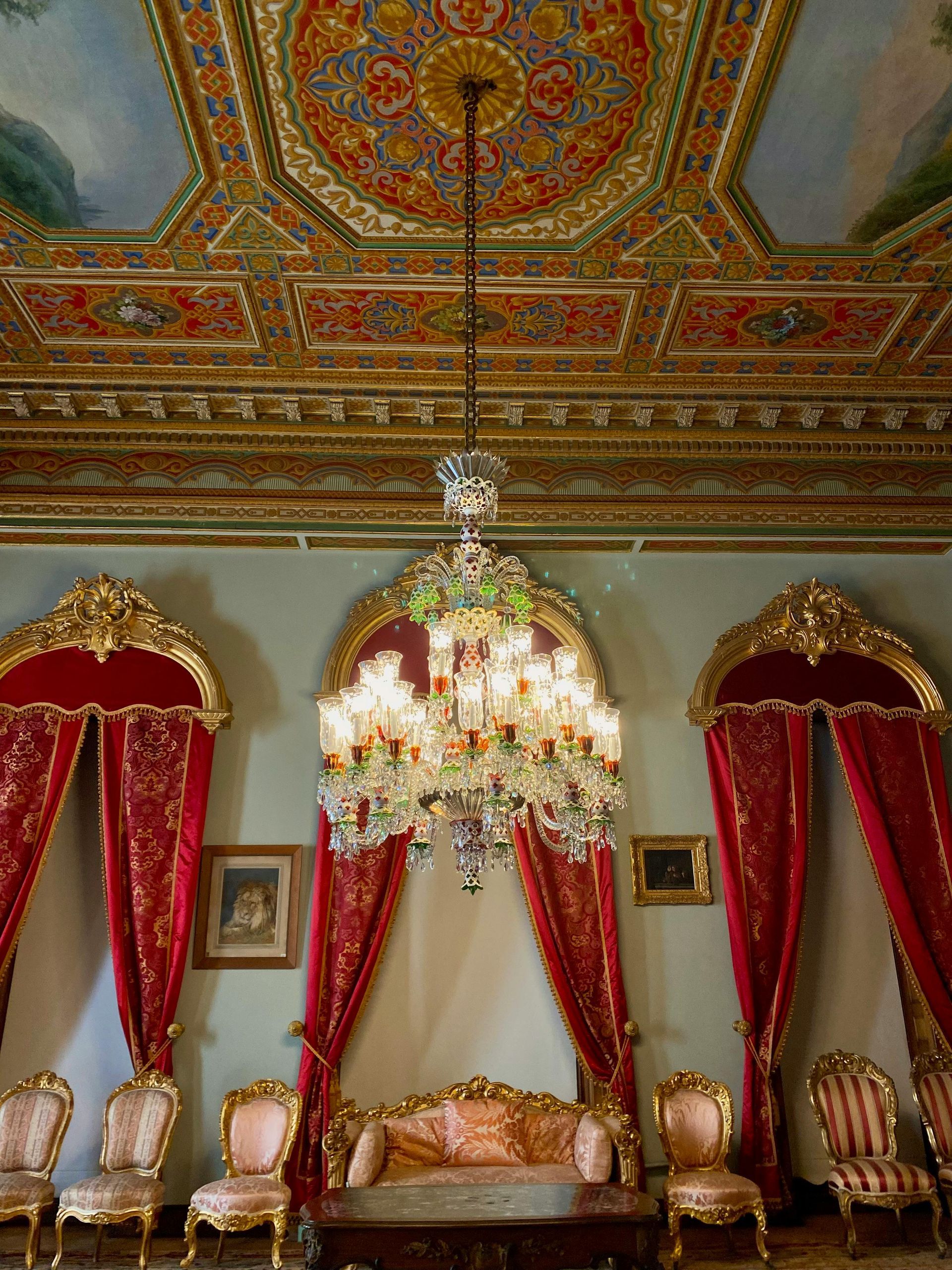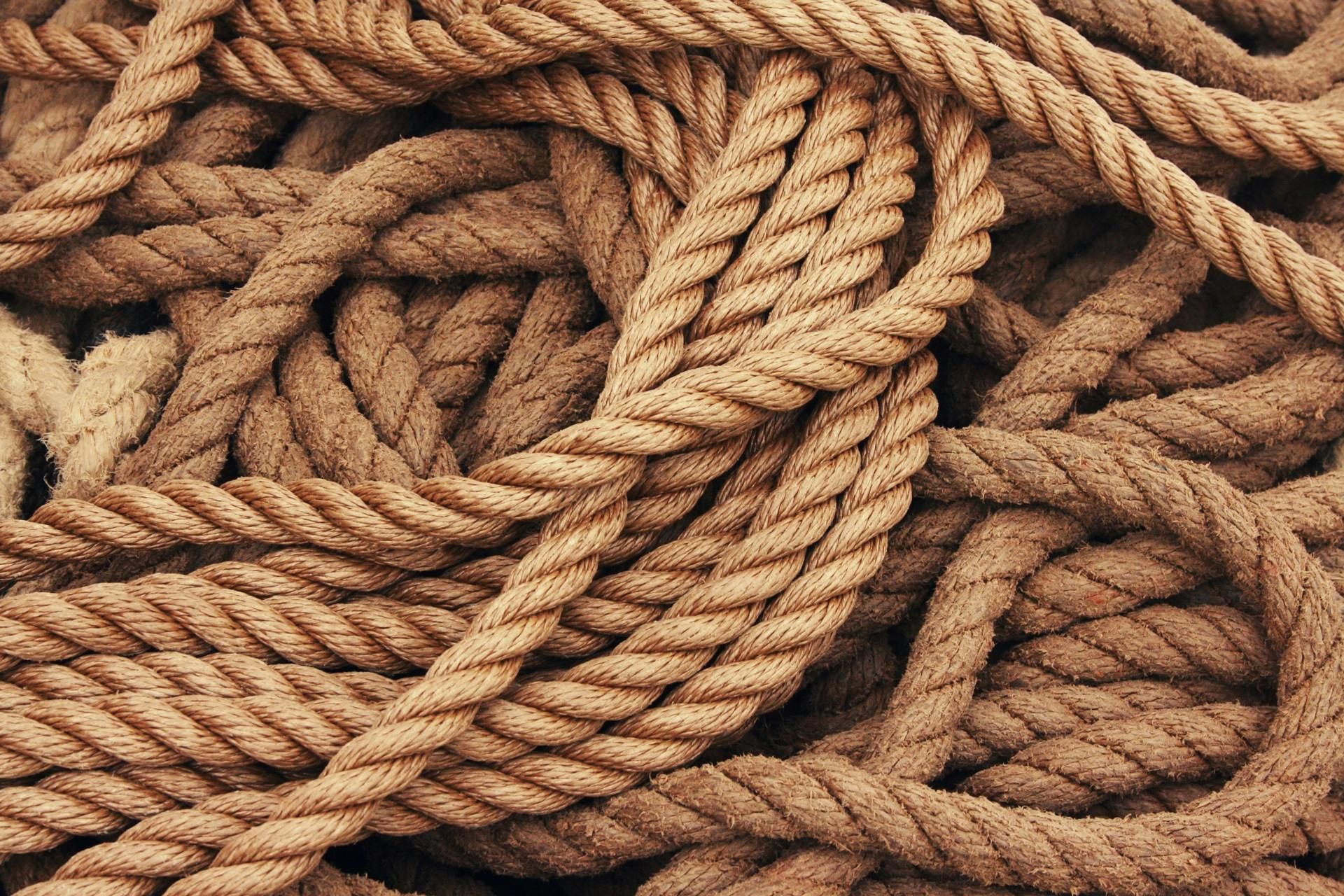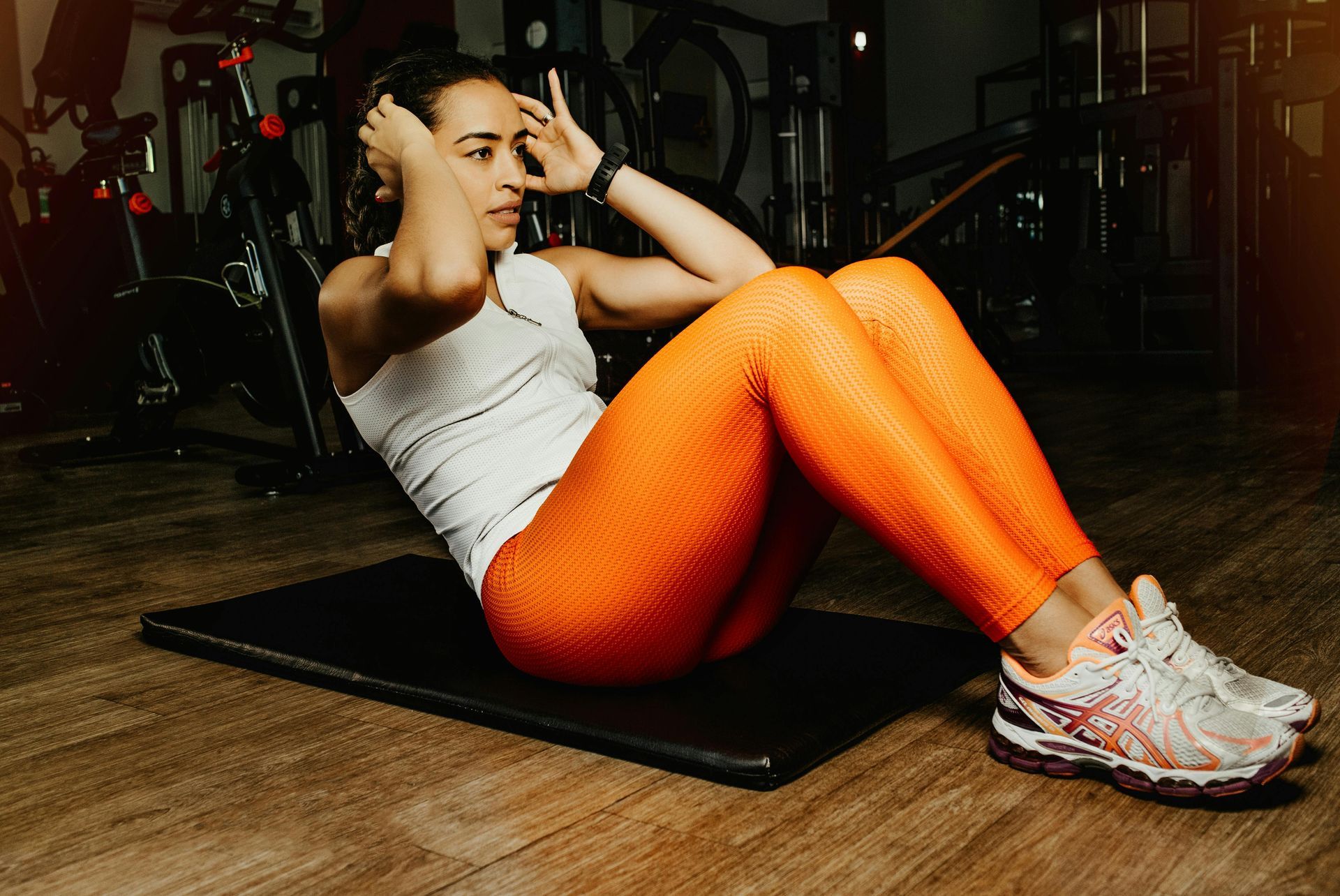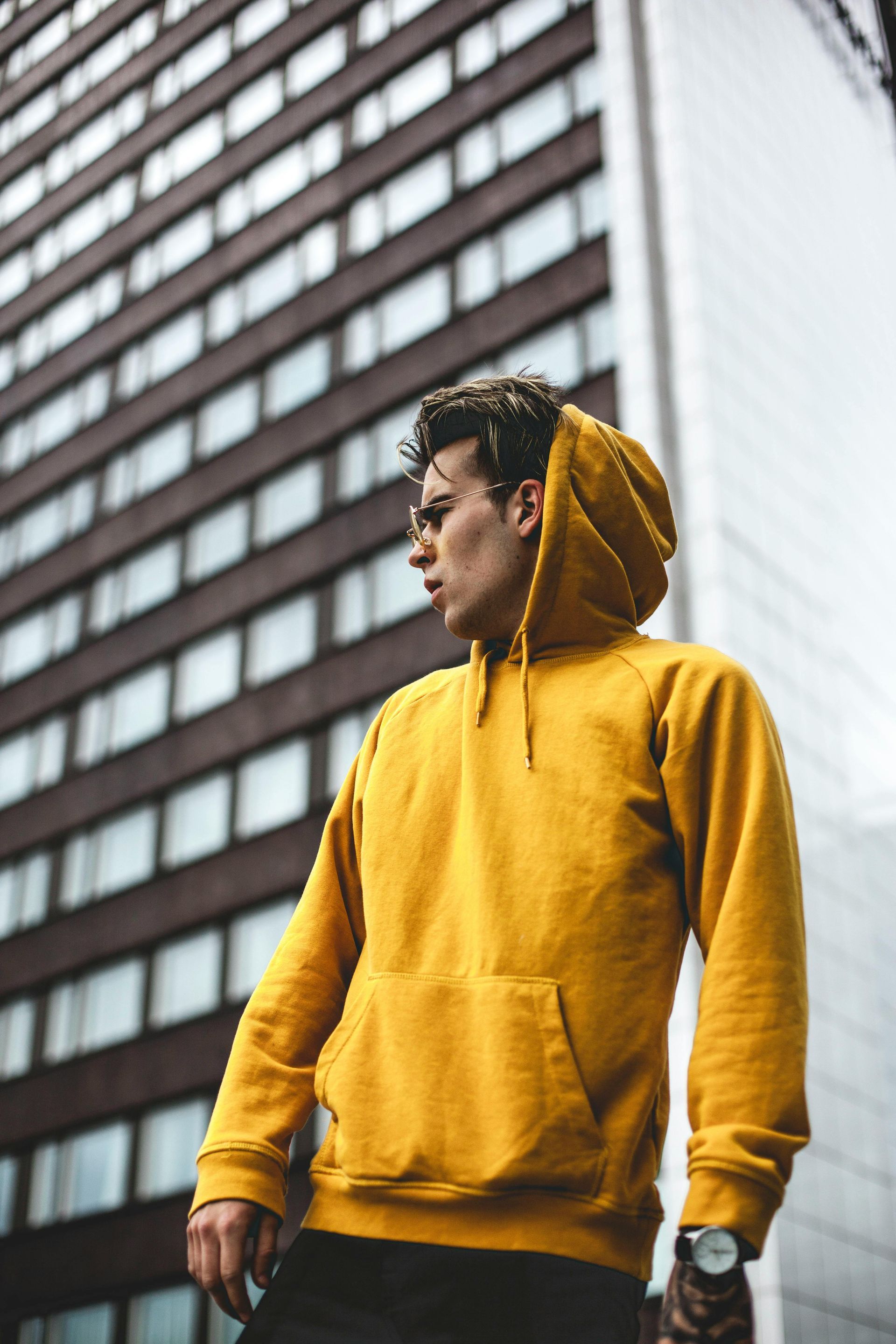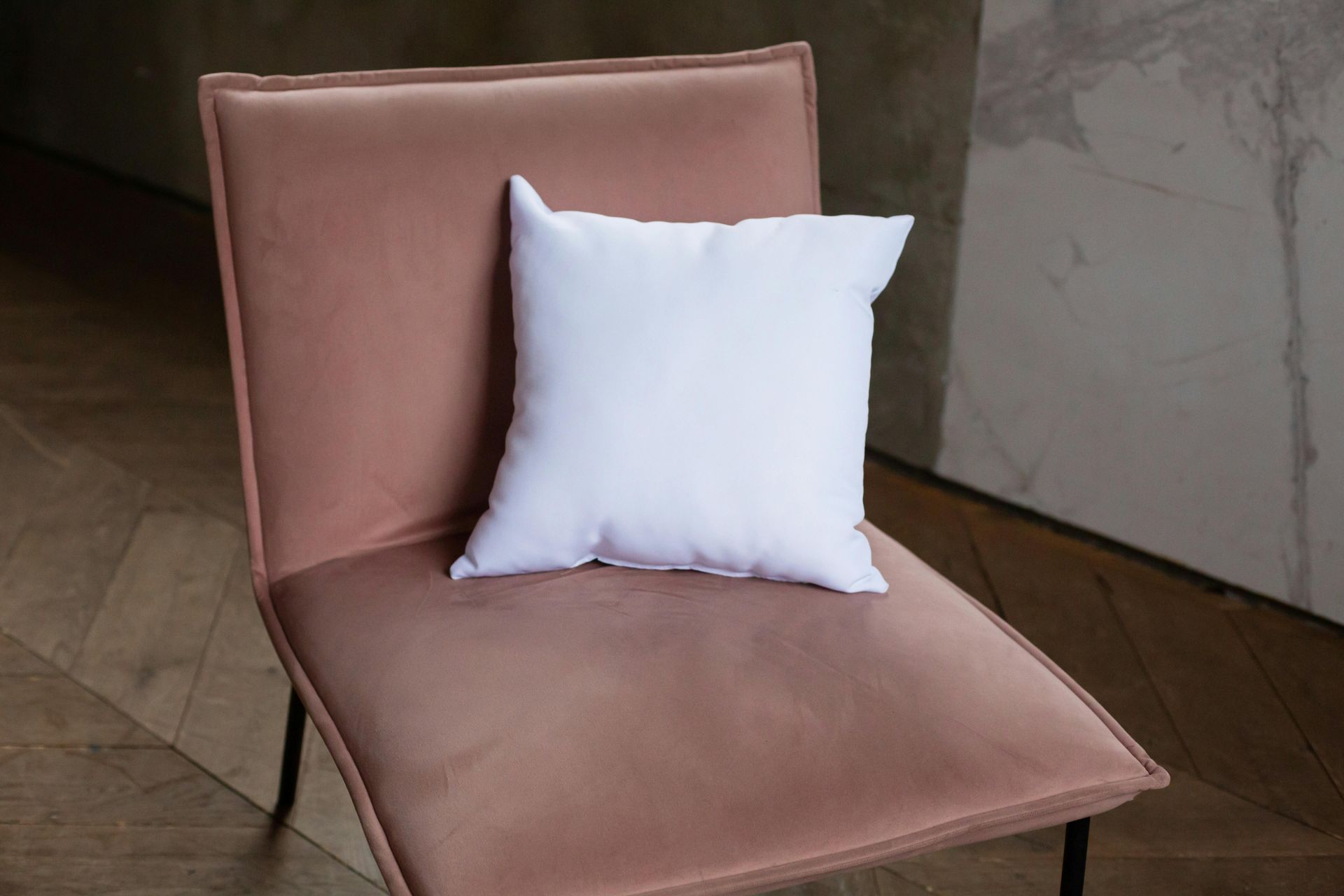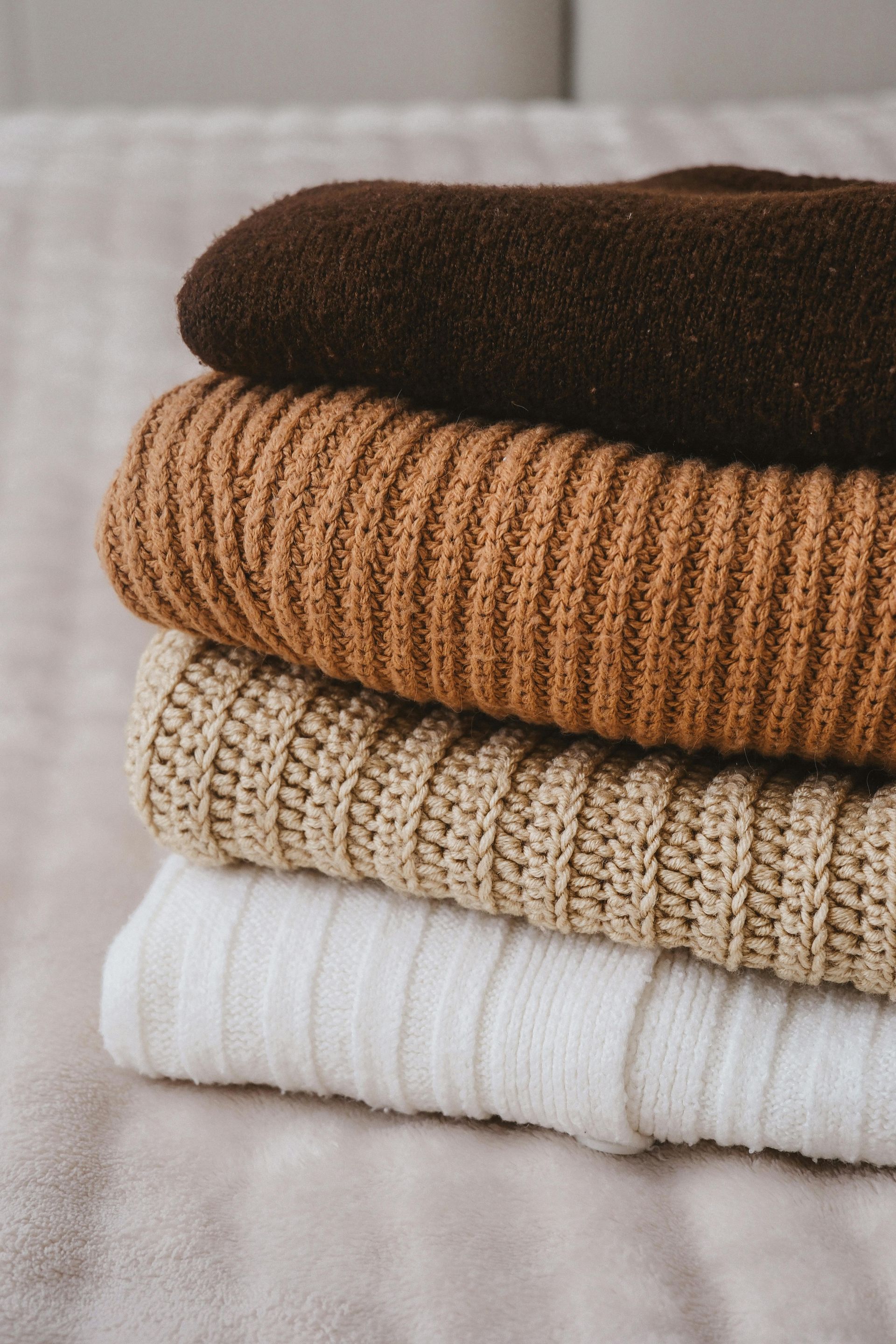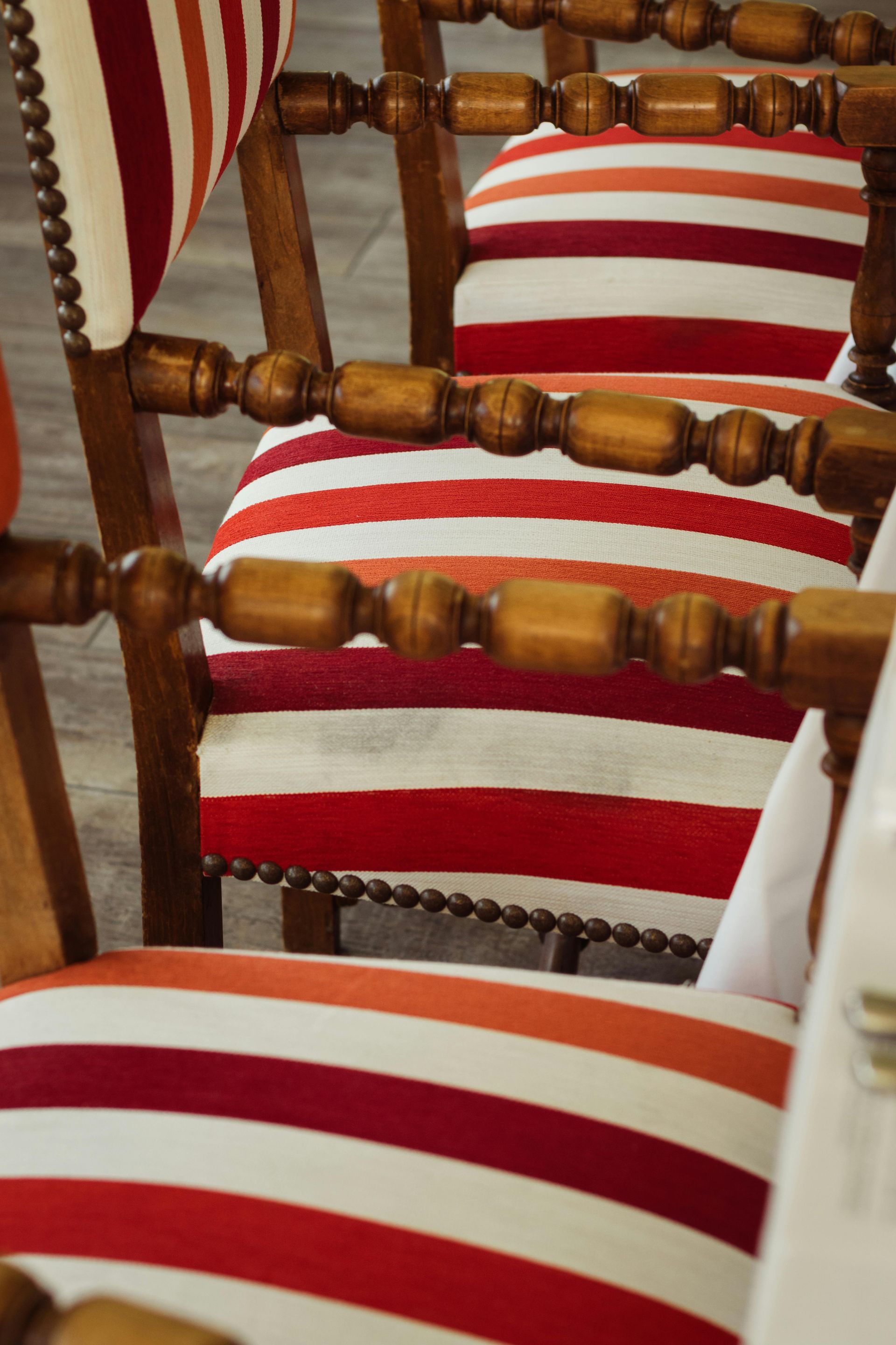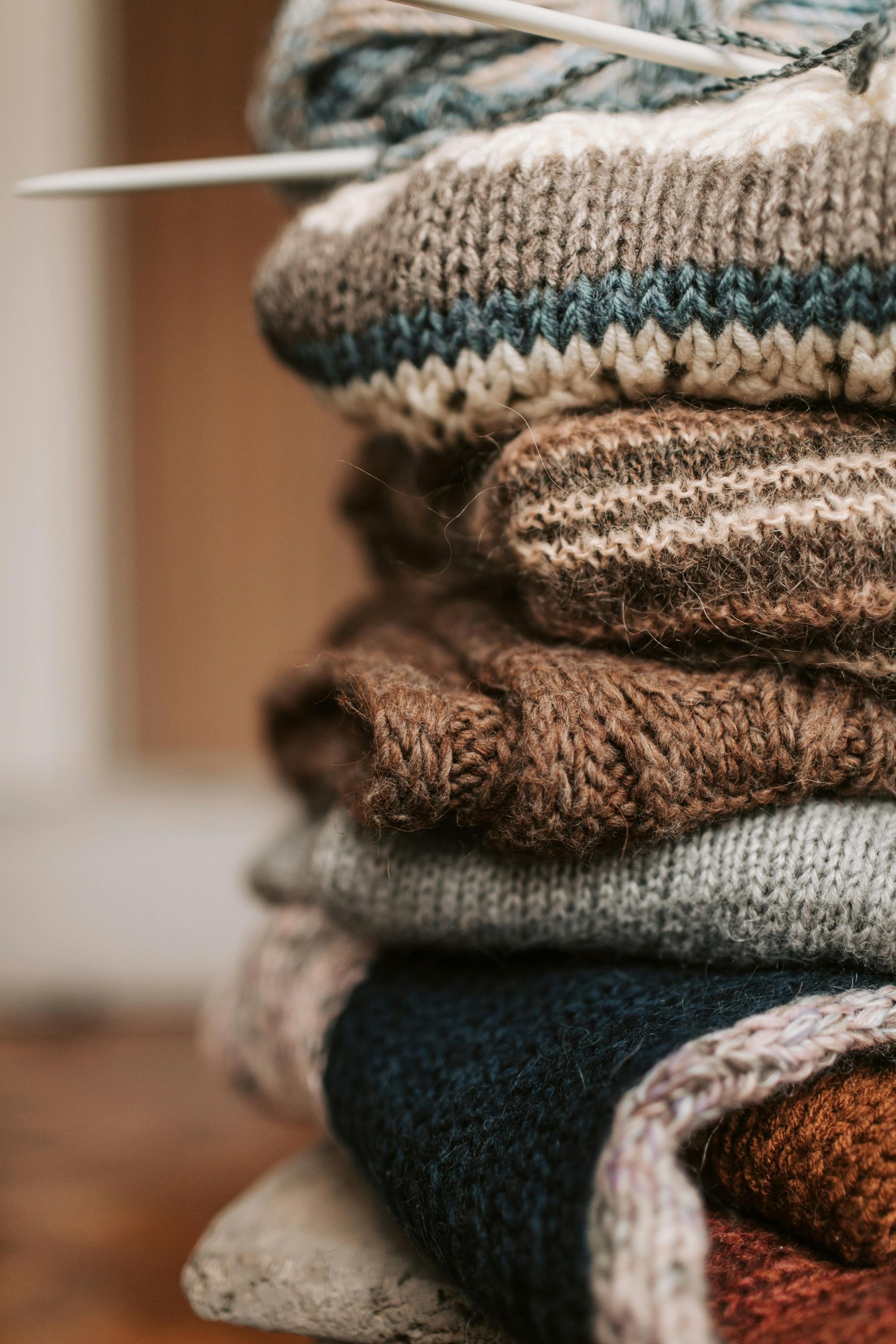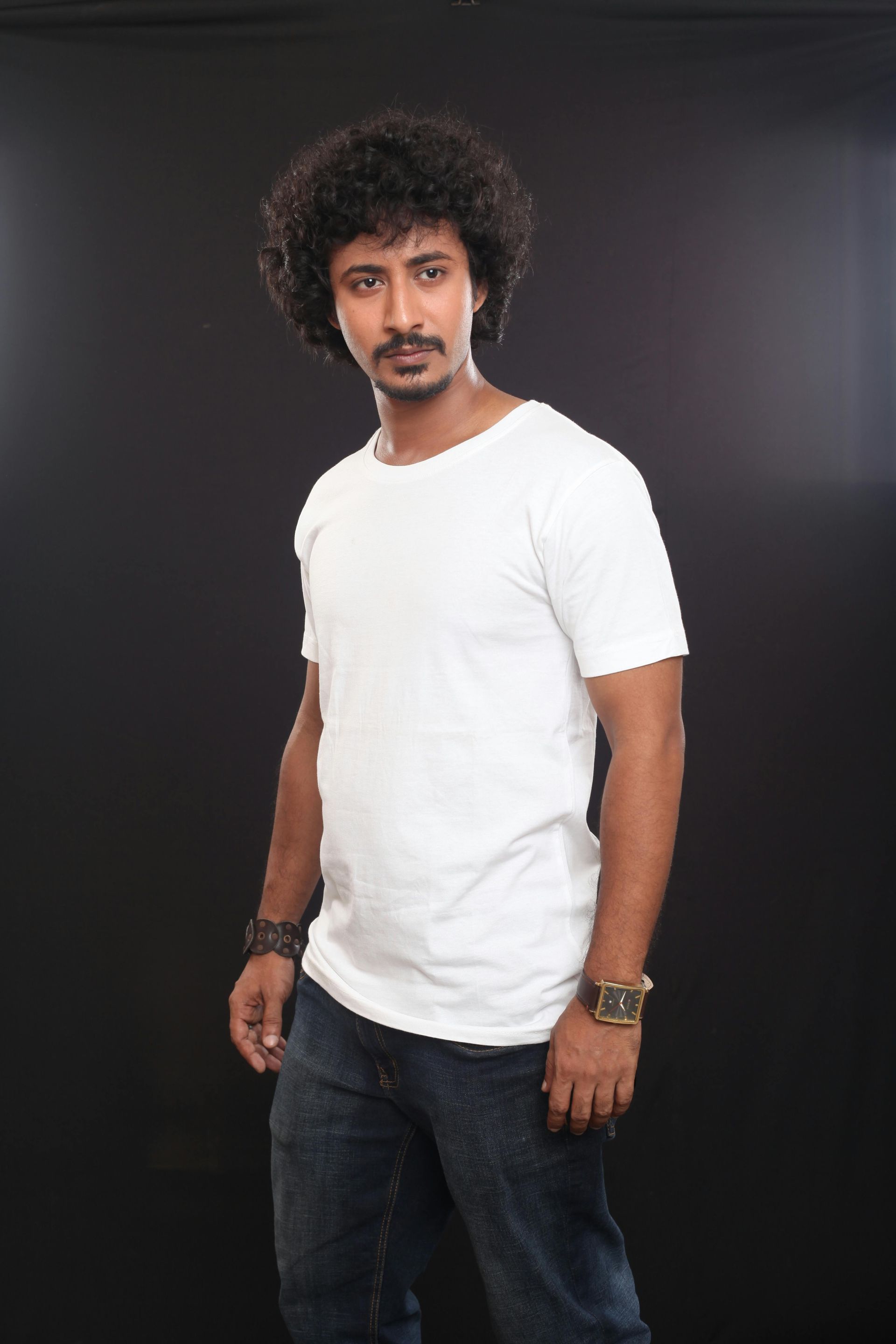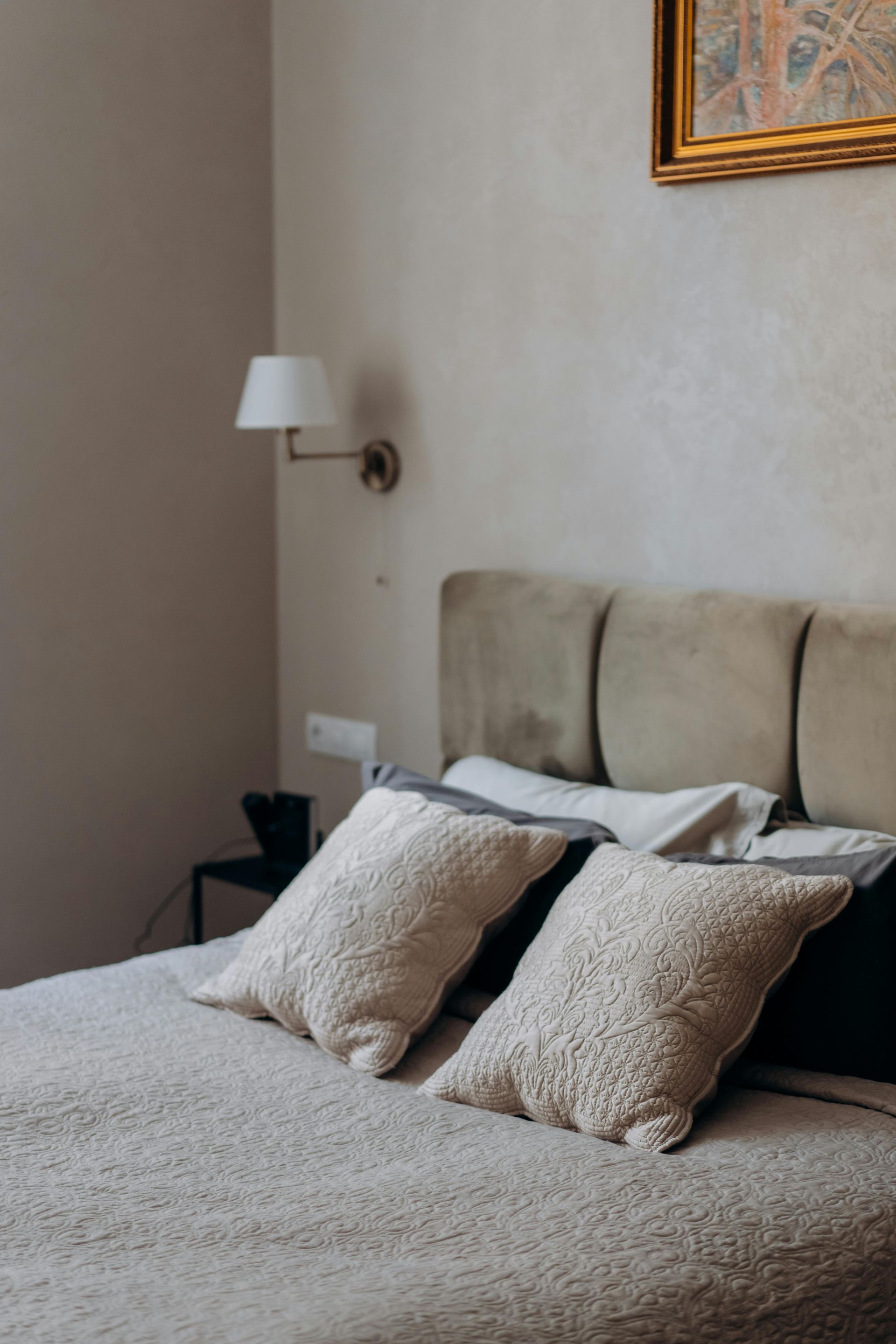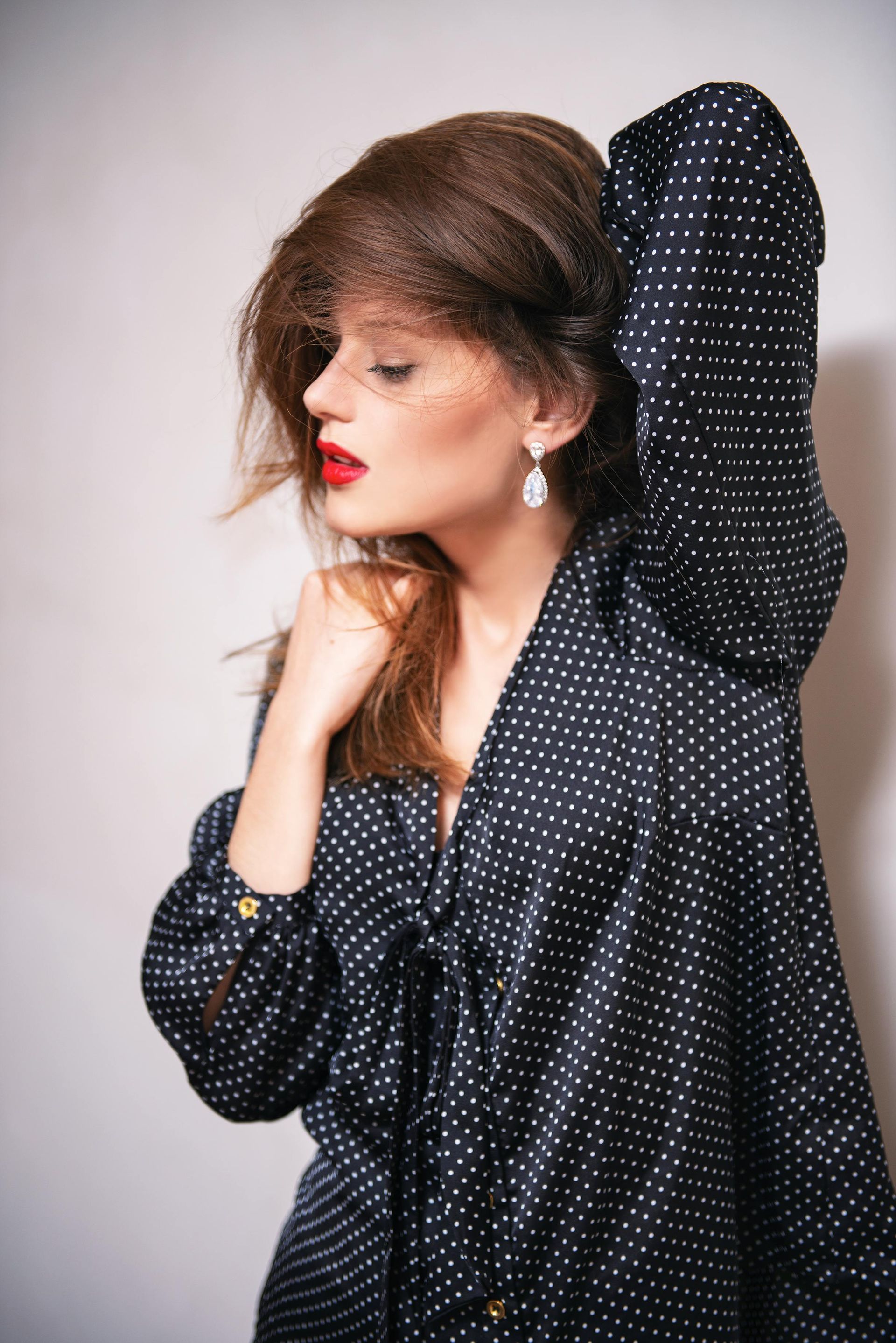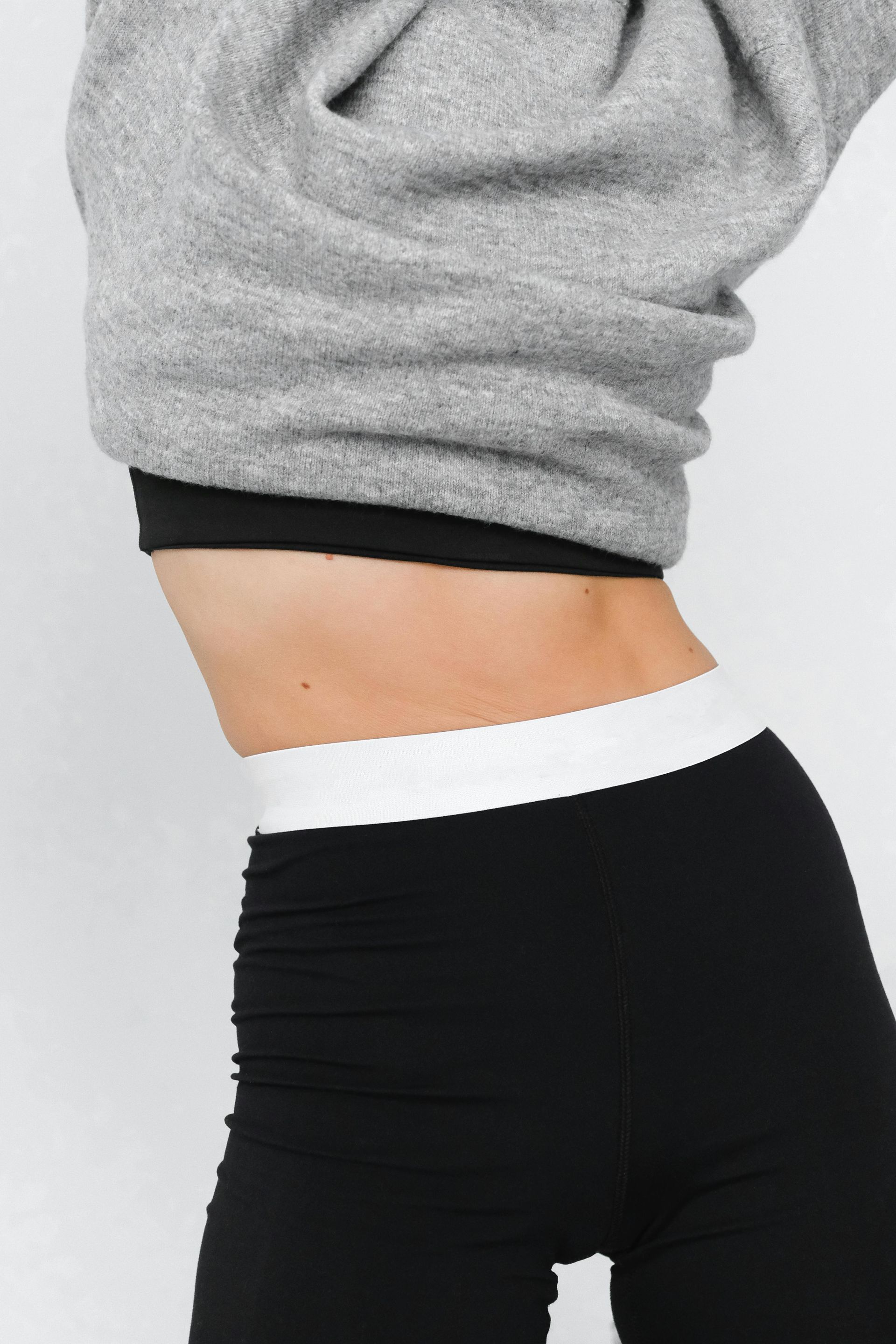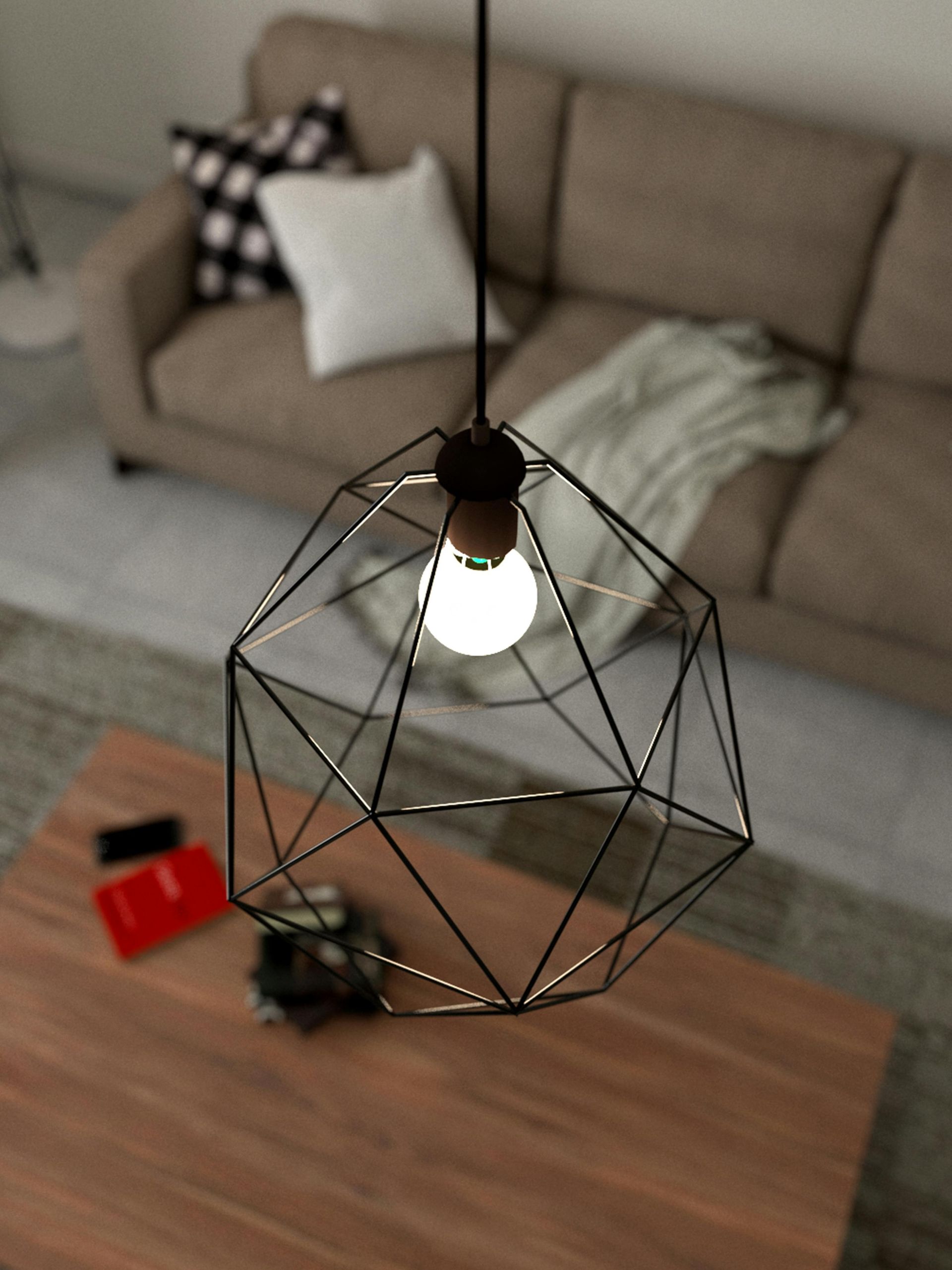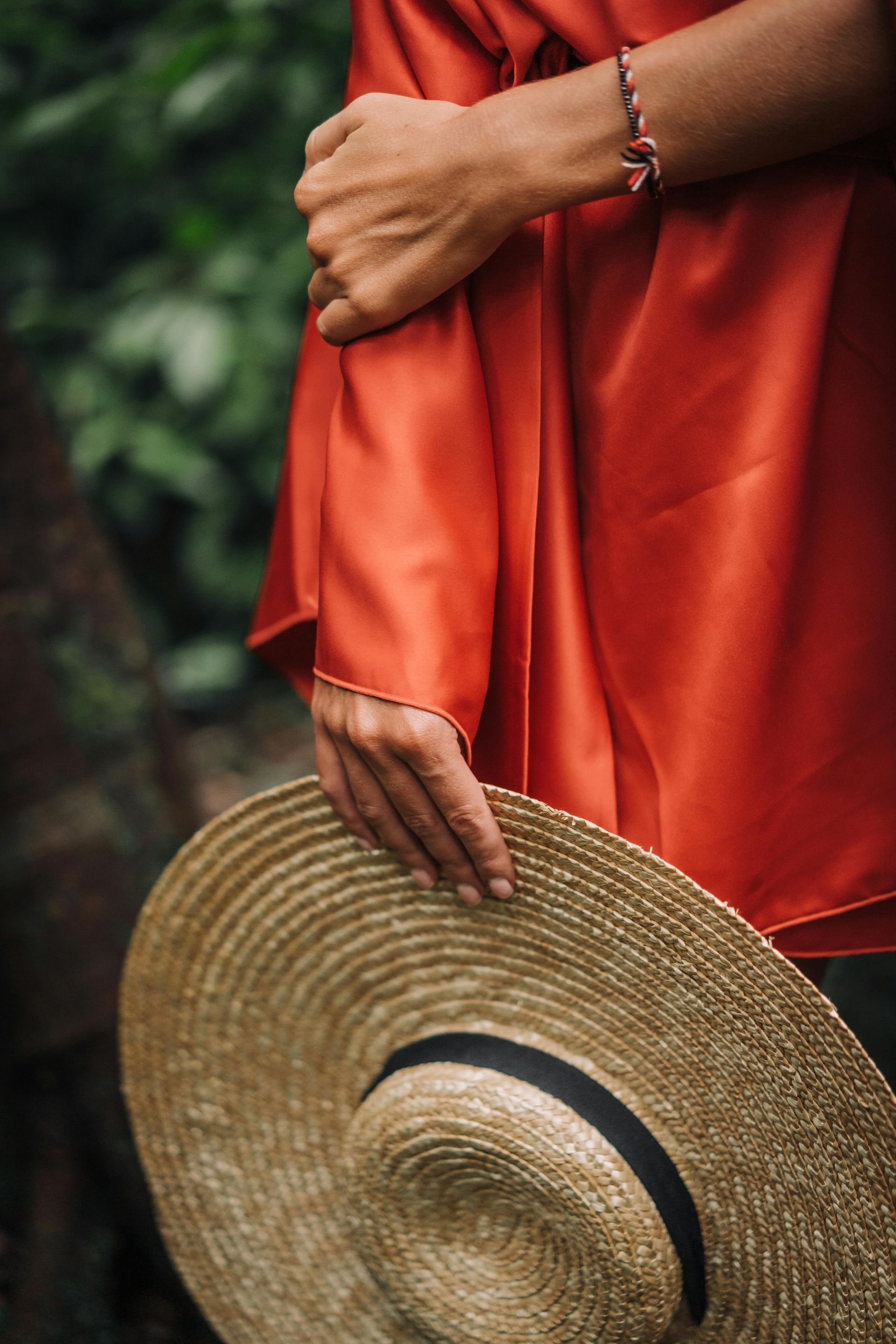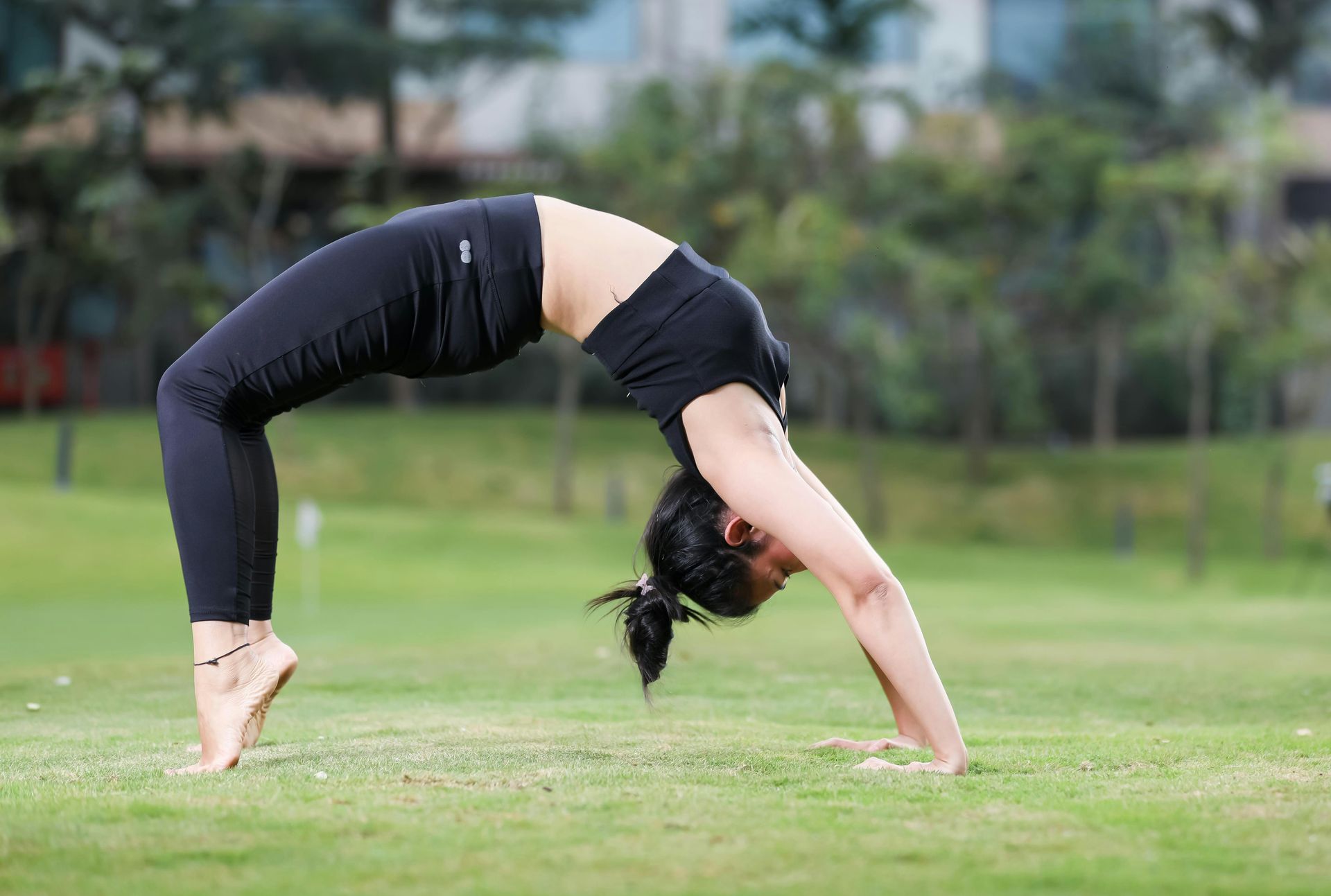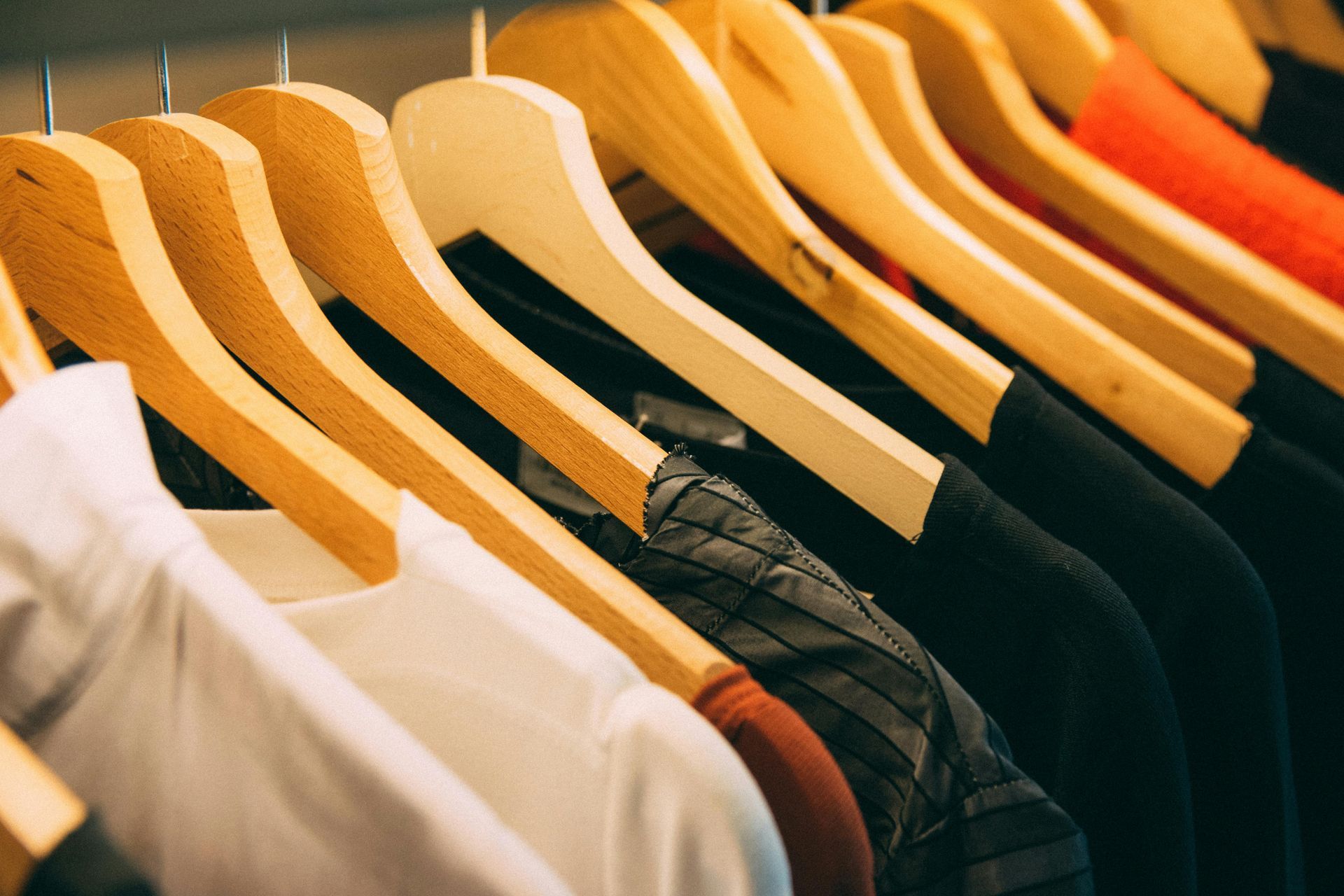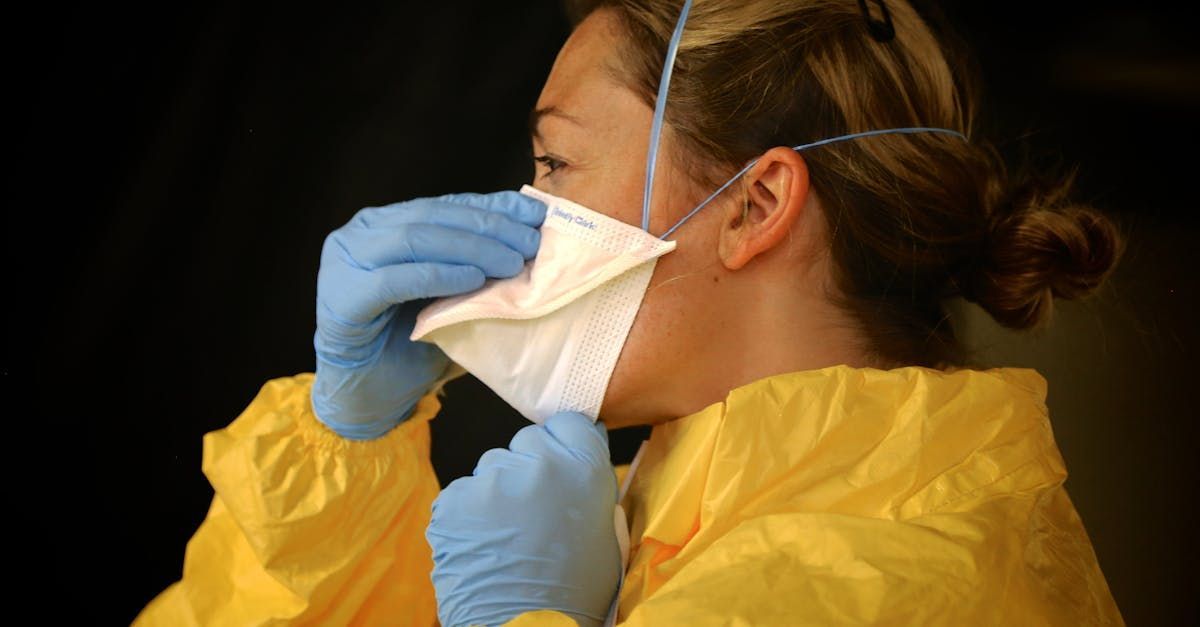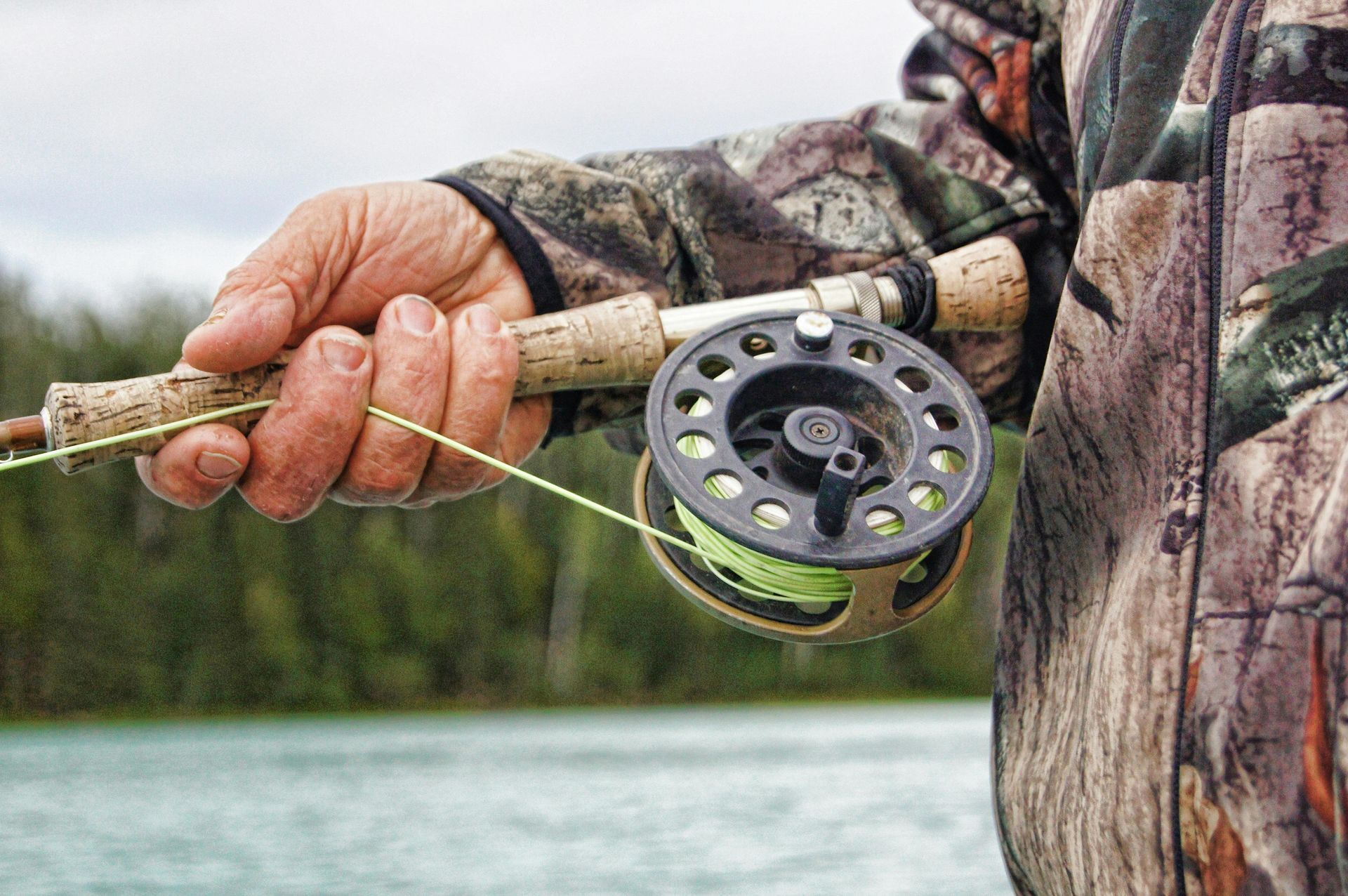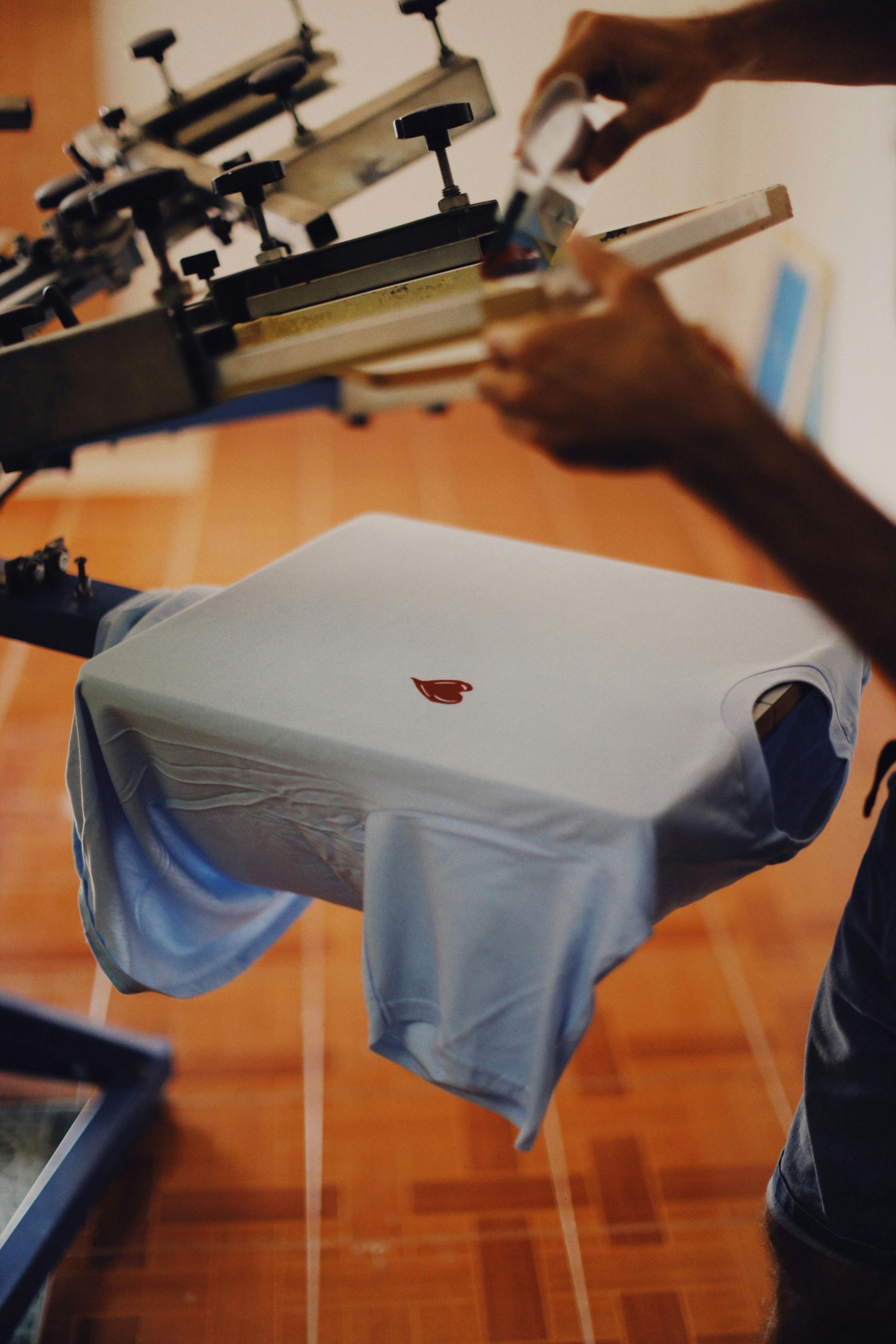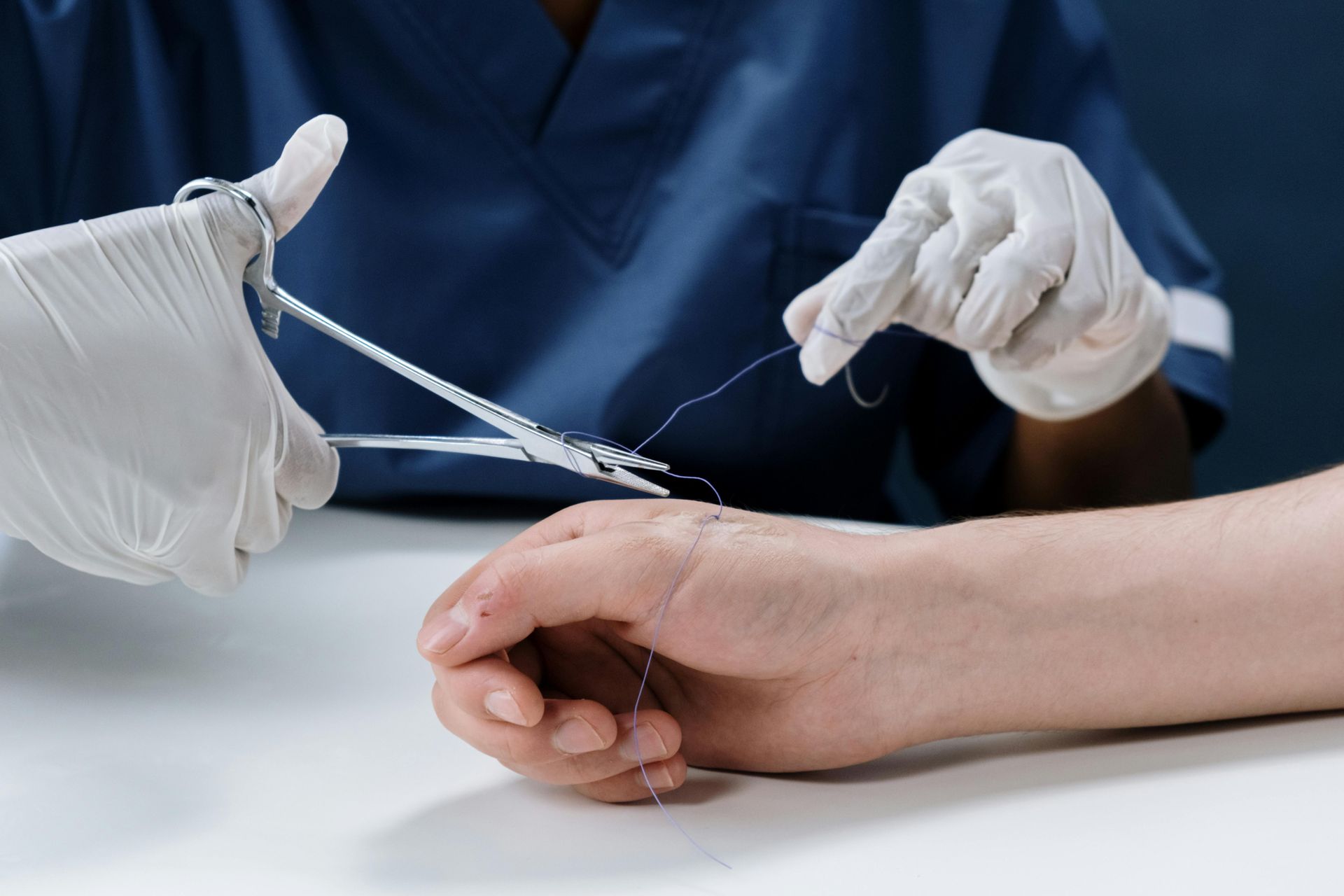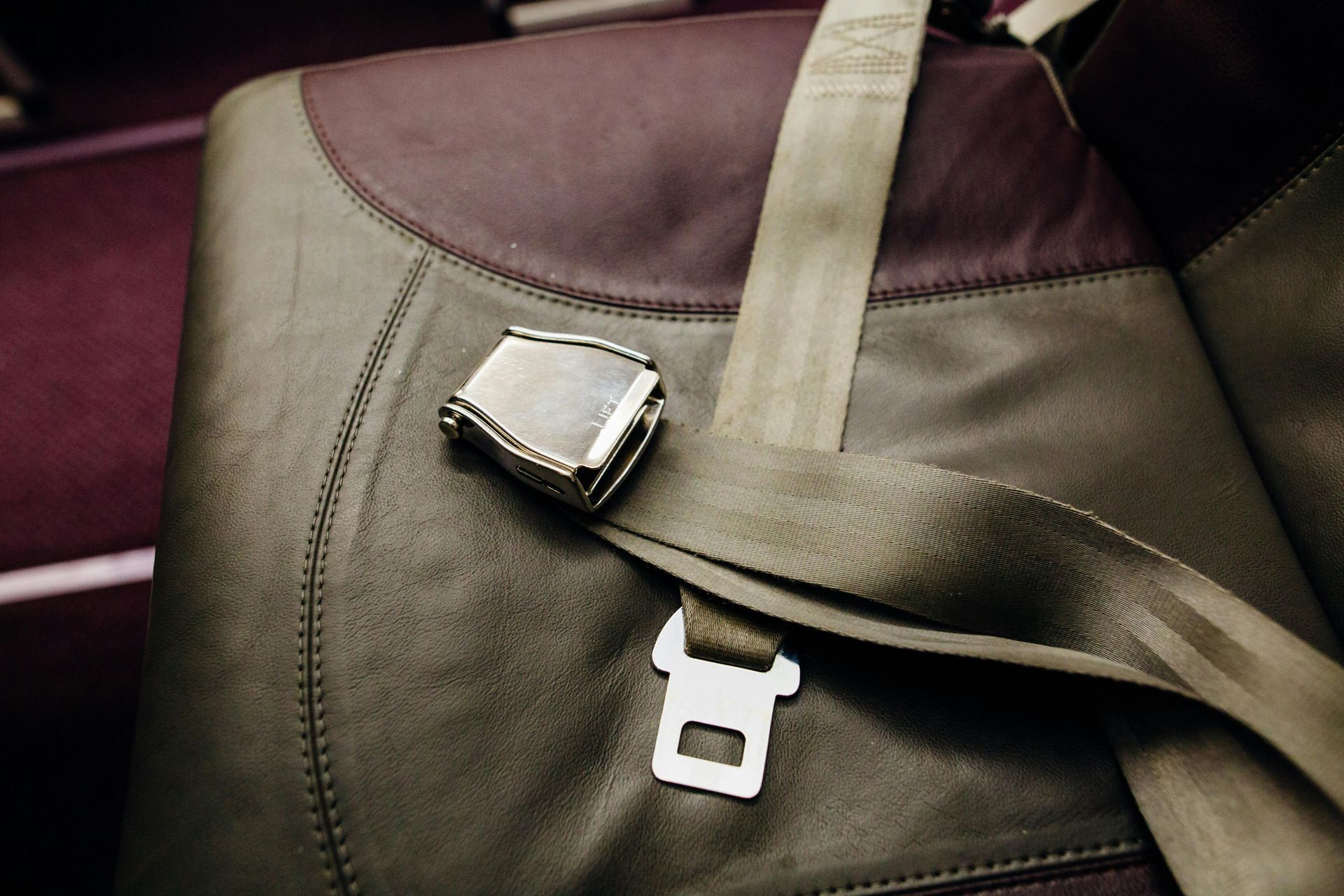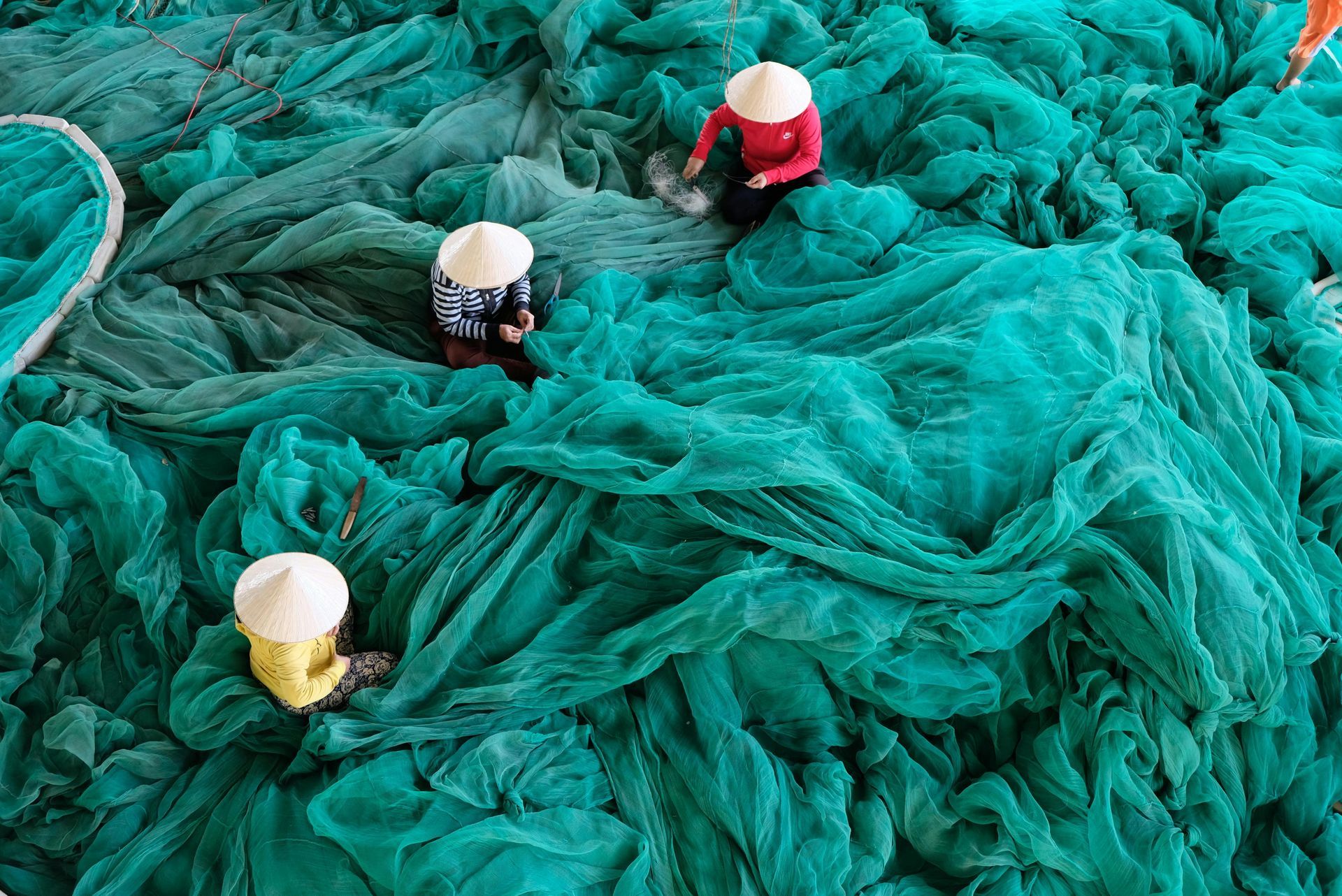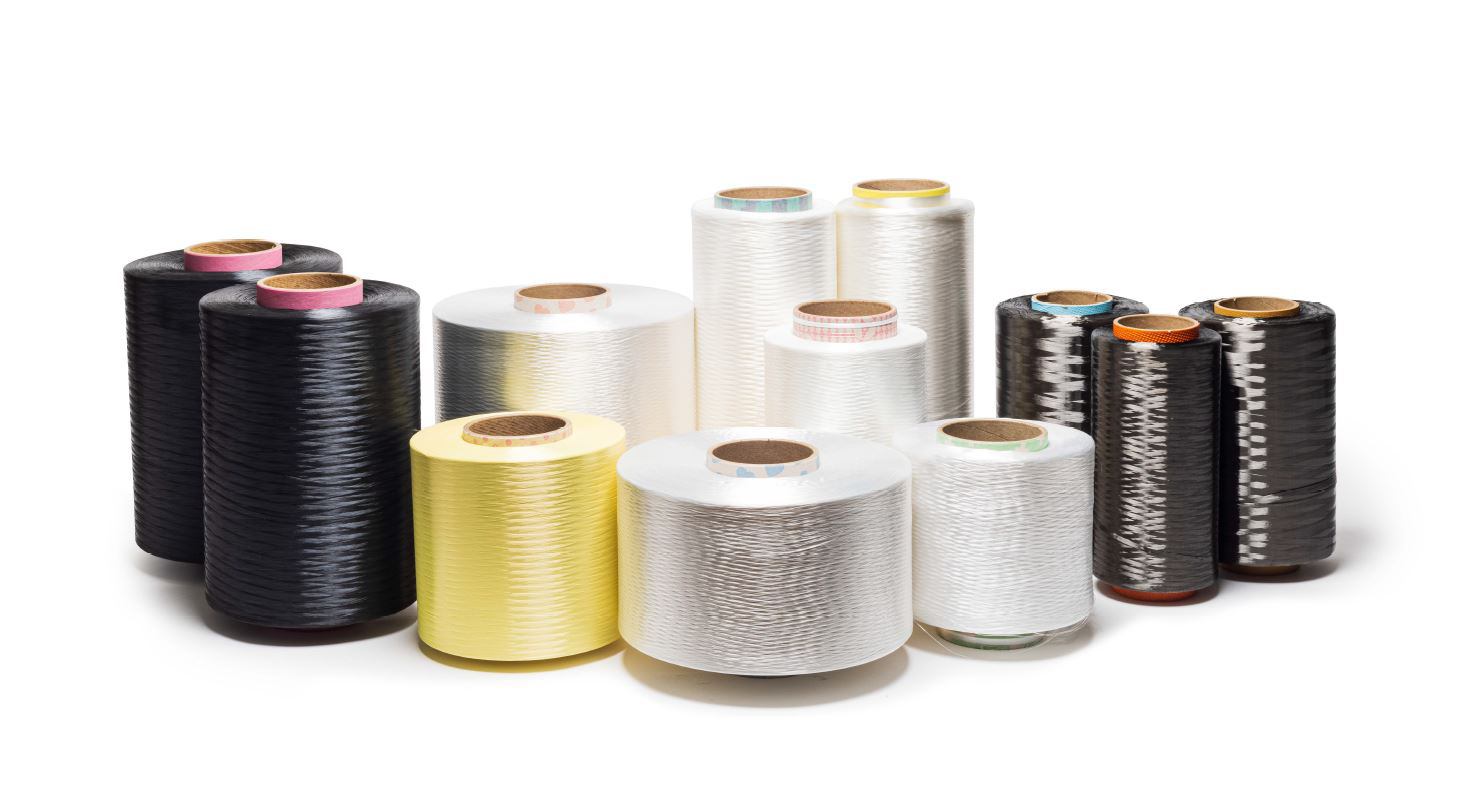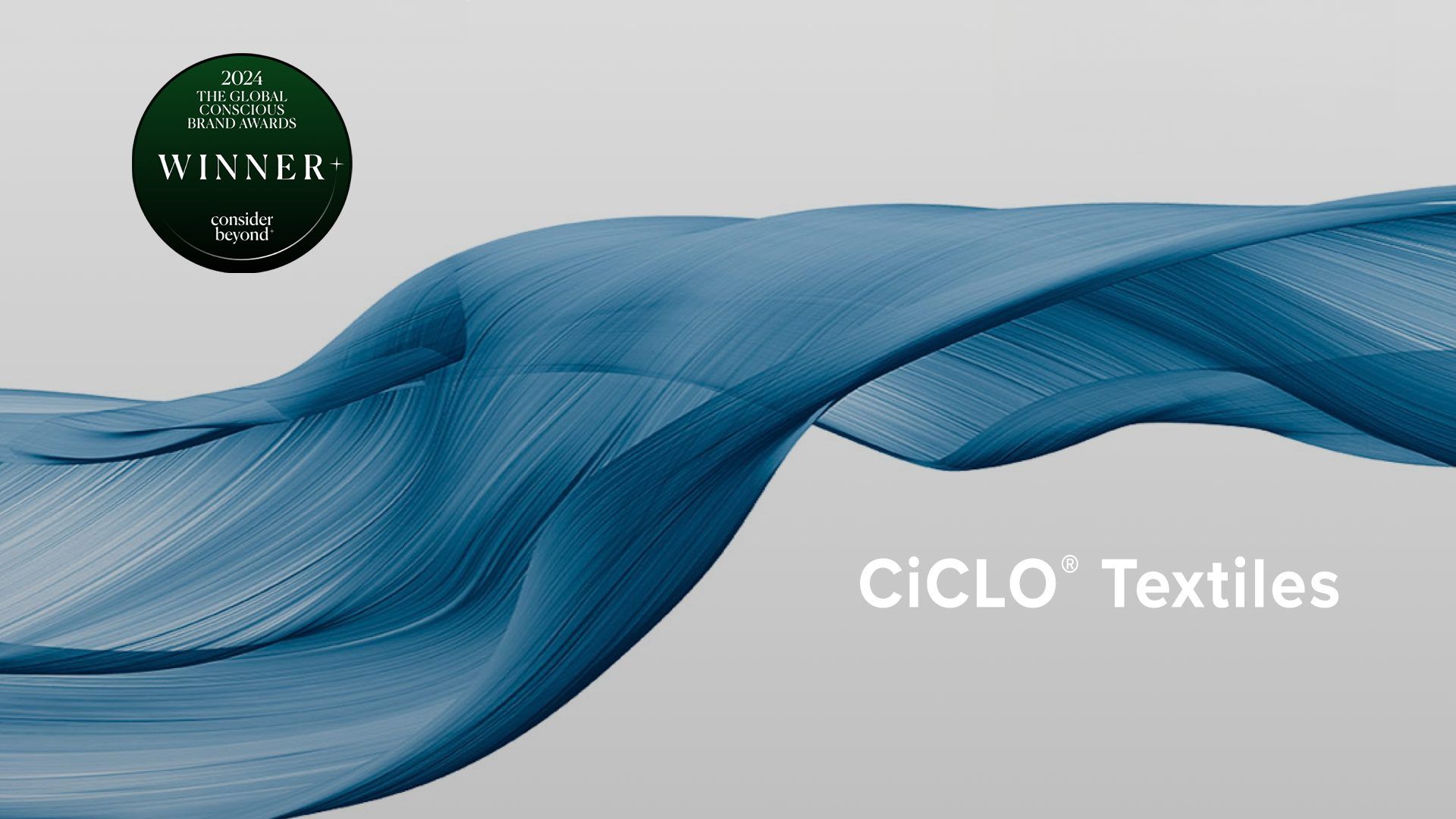The Ultimate Guide to Polyester Yarn Types: POY, FDY, DTY, and Beyond
Polyester yarns are a cornerstone of the global textile industry,
valued for their strength, versatility, and adaptability across fashion, home textiles, and industrial applications. This guide provides an exploration of key polyester yarn types—Partially Oriented Yarn (POY), Fully Drawn Yarn (FDY), Draw Textured Yarn (DTY/PTY), Super Dye Cationic Yarn, Cotluk Full Dull Yarn, Color Yarn (Dope Dyed), Crimp Yarns, Micro Yarns, Mother Yarn, Monofilament Yarn, and Industrial Yarn (IDY)—detailing their manufacturing processes, technical properties, applications, and sustainability aspects. Each section highlights how Jiwarajka Textile Industries contributes to these categories with its innovative, eco-conscious offerings, making this the most comprehensive resource on these polyester yarns available.
In this blog we cover the full range of yarn produced by Jiwarajka Textile Industries:
- Partially Oriented Yarn (POY)
- Fully Drawn Yarn (FDY)
- Draw Textured Yarn (DTY/PTY)
- Super Dye Cationic Yarn
- Cotluk Full Dull Yarn
- Color Yarn (Dope Dyed)
- Crimp Yarns
- Micro Yarns
- Mother Yarn
- Monofilament Yarn
- Industrial Yarn (IDY)
1. Partially Oriented Yarn (POY)
What is POY? Partially Oriented Yarn (POY) is a continuous filament polyester yarn produced through melt spinning, where molten polyethylene terephthalate (PET) is extruded and partially stretched at high speeds. Its semi-crystalline structure and moderate molecular orientation make it a flexible precursor for textured yarns like DTY.
Manufacturing Process
- Polymer Preparation: PET chips are dried at 160–180°C to remove moisture, preventing defects during extrusion.
- Melt Spinning: Molten PET is extruded through spinnerets (0.1–0.5 mm holes) at 280–300°C, forming continuous filaments.
- Cooling and Partial Drawing: Filaments are cooled with air and stretched at 2,500–3,500 m/min, aligning molecular chains without full orientation.
- Winding: Wound onto bobbins with precise tension to ensure uniformity.
Technical Properties
- Denier Range: 50–600 denier (industry standard), with finer deniers (50–150) for apparel and coarser (300–600) for industrial precursors.
- Tenacity: 2.5–3.5 g/denier, providing moderate strength for further processing.
- Elongation: 80–120%, allowing significant stretching during texturing.
- Shrinkage: 5–10%, requiring stabilization in downstream processes.
- Filament Count: 24–144, affecting fineness and texture.
- Finish: Bright, semi-dull, or full-dull luster options.
Applications
- Textile Precursor: Base for DTY, used in apparel (e.g., activewear, sarees) and home textiles (e.g., curtains).
- Industrial Uses: Precursor for geotextiles, tire cords, and sewing threads after texturing.
- Specialty Fabrics: Lightweight linings and breathable sportswear fabrics.
Sustainability Considerations
- Recyclability: Can be made from recycled PET (rPET), reducing virgin polyester use.
- Energy Efficiency: Partial drawing consumes less energy than full drawing, though spinning is energy-intensive.
- Biodegradability: Additives like CiCLO enhance landfill biodegradability, reducing microplastic pollution.
Jiwarajka’s Offerings Jiwarajka produces POY in 130/36, 130/48, 130/72, 115/108, 250/48, 250/108, and 520/96 denier/filament configurations, available in raw white, bright, and dope-dyed variants. Their POY incorporates CiCLO technology for biodegradability and is optimized for sustainable apparel and home textile applications.
2. Fully Drawn Yarn (FDY)
What is FDY? Fully Drawn Yarn (FDY) is a polyester filament yarn fully stretched during spinning, resulting in a highly oriented, crystalline structure. Its strength and dimensional stability make it suitable for direct weaving or knitting.
Manufacturing Process
- Melt Spinning: PET is extruded through spinnerets at 280–300°C.
- Drawing and Heat Setting: Filaments are drawn at 4,000–6,000 m/min using heated godets (80–120°C) to maximize orientation, then heat-set to minimize shrinkage.
- Winding: Precision winding ensures uniform tension.
Technical Properties
- Denier Range: 20–600 denier, with fine (20–100) for apparel and coarse (200–600) for technical uses.
- Tenacity: 4.5–6.0 g/denier, ensuring high strength.
- Elongation: 20–40%, providing stability with minimal stretch.
- Shrinkage: 1–3%, ideal for shape retention.
- Filament Count: 24–288, balancing fineness and durability.
- Finish: Bright, semi-dull, or full-dull luster.
Applications
- Fashion: Satin, chiffon, and taffeta for dresses and scarves.
- Home Furnishings: Upholstery, drapery, and bedding.
- Technical Textiles: Conveyor belts, ropes, and sailcloth.
Sustainability Considerations
- Dope-Dyeing: Reduces water and energy use by up to 90% and 60%, respectively.
- Recycled FDY: Uses rPET for circularity.
Jiwarajka’s Offerings Jiwarajka’s FDY includes 80/12, 50/24, 50/36, 75/36, 150/48, and 150/96 denier/filament options in raw white, bright, semi-dull, and dope-dyed variants. Their recycled and CiCLO-enhanced FDY supports sustainable fashion and technical textiles.
3. Draw Textured Yarn (DTY/PTY)
What is DTY/PTY? Draw Textured Yarn (DTY), also known as Polyester Textured Yarn (PTY), is a polyester yarn made by texturing POY through drawing and twisting, creating a crimped, stretchy texture that mimics natural fibers for softness and comfort.
Manufacturing Process
- Texturing: POY is fed into a false-twist or friction texturing machine, drawn (1.5–2.0 draw ratio), heated (150–200°C), and twisted to create crimps or loops.
- Heat Setting: Stabilizes texture for elasticity and bulk.
- Winding: Controlled winding preserves texture.
Technical Properties
- Denier Range: 50–600 denier, with filament counts from 24–288.
- Tenacity: 3.0–4.5 g/denier, balancing strength and flexibility.
- Elongation: 20–50%, offering stretch and recovery.
- Texture: Bulky, soft, with low, medium, or high crimp (NIM, SIM, HIM).
- Finish: Bright, semi-dull, or cationic-dyeable.
Applications
- Activewear: Stretchy fabrics for leggings, sports bras, and swimwear.
- Casual Clothing: T-shirts, hoodies, and knitwear.
- Home Textiles: Textured throws and cushion covers.
Sustainability Considerations
- Biodegradability: CiCLO technology enables landfill biodegradation.
- Dope-Dyeing: Reduces dyeing-related water and chemical use.
- Recycled DTY: Uses rPET for sustainability.
Jiwarajka’s Offerings Jiwarajka’s DTY/PTY includes 75/36, 75/48, 75/72, 75/108, 75/144, 150/48, 150/108, and 300/96 denier/filament in NIM, SIM, and HIM, available in single and two-ply, with dope-dyed and CiCLO-enhanced options for sustainable apparel and home textiles.
4. Super Dye Cationic Yarn
What is Super Dye Cationic Yarn? Super Dye Cationic Yarn is a polyester yarn chemically modified with sulfonate groups to enhance affinity for cationic dyes, enabling vibrant, deep colors and unique effects like heather when blended with regular polyester.
Manufacturing Process
- Polymer Modification: PET is copolymerized with sulfonate-containing monomers (e.g., sodium sulfoisophthalate) for dye affinity.
- Spinning and Drawing: Processed like POY or DTY, with optional texturing.
- Dyeing: Cationic dyes bond strongly, ensuring colorfastness.
Technical Properties
- Denier Range: 50–600 denier, with 24–288 filaments.
- Tenacity: 3.0–4.5 g/denier, similar to DTY.
- Elongation: 20–50%, offering stretch.
- Dyeability: High affinity for cationic dyes, yielding vivid, durable colors.
- Texture: Smooth or textured, often DTY-like.
Applications
- Apparel: Knitwear, sportswear, and patterned fabrics.
- Home Textiles: Decorative throws and upholstery with color effects.
- Accessories: Scarves and socks with vibrant designs.
Sustainability Considerations
- Dope-Dyeing: Eliminates traditional dyeing, reducing water and energy use.
- Recyclability: Can incorporate rPET.
Jiwarajka’s Offerings Jiwarajka’s Super Dye Cationic Yarn, derived from POY, is available in 50–300 denier with dope-dyed options, supporting vibrant, sustainable apparel and home textiles with superior colorfastness.
5. Cotluk Full Dull Yarn
What is Cotluk Full Dull Yarn? Cotluk Full Dull Yarn is a polyester yarn with a non-reflective, matte finish achieved by adding high levels of titanium dioxide (TiO2) during spinning, mimicking the soft, natural look of cotton.
Manufacturing Process
- Melt Spinning: PET with 2–3% TiO2 is extruded to reduce luster.
- Drawing and Texturing: Processed like DTY or FDY for desired properties.
- Winding: Ensures uniform matte appearance.
Technical Properties
- Denier Range: 50–600 denier, with 24–288 filaments.
- Tenacity: 3.0–5.0 g/denier, depending on processing.
- Elongation: 20–50%, offering flexibility.
- Finish: Matte, non-reflective, cotton-like appearance.
- Texture: Smooth or textured, often DTY-like.
Applications
- Apparel: Knitted garments like T-shirts and casual wear.
- Home Textiles: Soft furnishings like bedspreads and curtains.
- Fashion: Eco-friendly fabrics with a natural aesthetic.
Sustainability Considerations
- Recyclability: Can use rPET for sustainability.
- Dope-Dyeing: Reduces dyeing impacts.
Jiwarajka’s Offerings Jiwarajka’s Cotluk Full Dull Yarn, in 50–300 denier, is produced with recycled polyester and dope-dyed options, ideal for sustainable knitted garments and home textiles with a cotton-like matte finish.
6. Color Yarn (Dope Dyed)
What is Color Yarn (Dope Dyed)? Color Yarn (Dope Dyed) is polyester yarn colored during spinning by adding pigments to molten PET, eliminating traditional dyeing for vibrant, eco-friendly results.
Manufacturing Process
- Pigment Addition: Colorants are mixed with molten PET before extrusion.
- Spinning: Colored polymer is extruded into filaments (POY, FDY, or DTY).
- Finishing: Minimal processing ensures color uniformity.
Technical Properties
- Denier Range: 20–600 denier, across POY, FDY, and DTY.
- Tenacity: 3.0–6.0 g/denier, matching base yarn properties.
- Elongation: 20–100%, depending on yarn type.
- Colorfastness: Superior resistance to fading, washing, and UV exposure.
- Finish: Bright, semi-dull, or full-dull.
Applications
- Fashion: Colorfast sportswear, outerwear, and linings.
- Automotive: UV-resistant car interior fabrics.
- Outdoor Textiles: Awnings, tents, and umbrellas.
Sustainability Considerations
- Water Savings: Reduces water use by up to 90% vs. traditional dyeing.
- Energy Efficiency: Cuts energy consumption by 60%.
- Recyclability: Can use rPET.
Jiwarajka’s Offerings Jiwarajka’s Color Yarn (Dope Dyed) spans POY, FDY, DTY, and embroidery thread in 50–300 denier, with a wide color palette and recycled options, supporting sustainable fashion and technical textiles.
7. Crimp Yarns
What are Crimp Yarns? Crimp Yarns are polyester yarns with a highly textured, wavy structure, created through specialized texturing processes to enhance bulk and elasticity, ideal for stretchy, voluminous fabrics.
Manufacturing Process
- Texturing: POY is processed via false-twist or air-jet texturing with high crimp settings.
- Heat Setting: Stabilizes the crimped structure for durability.
- Winding: Preserves the yarn’s wavy texture.
Technical Properties
- Denier Range: 50–600 denier, with 24–288 filaments.
- Tenacity: 2.5–4.0 g/denier, slightly lower due to texturing.
- Elongation: 30–60%, offering enhanced stretch.
- Texture: Highly crimped, bulky, and elastic.
- Finish: Bright or semi-dull.
Applications
- Apparel: Stretchy fabrics for activewear and knitwear.
- Home Textiles: Textured upholstery and throws.
- Technical Textiles: Elastic components in tapes and bands.
Sustainability Considerations
- Recycled Inputs: Can use rPET.
- Dope-Dyeing: Reduces dyeing impacts.
Jiwarajka’s Offerings Jiwarajka’s Crimp Yarns, in 50–300 denier, include recycled and dope-dyed variants, tailored for sustainable stretch fabrics in apparel and home textiles.
8. Micro Yarns
What are Micro Yarns? Micro Yarns are extra-fine polyester yarns with low denier per filament (DPF < 1.0), offering exceptional softness, drape, and lightweight properties compared to standard polyester yarns.
Manufacturing Process
- Melt Spinning: PET is extruded through ultra-fine spinnerets (0.05–0.1 mm).
- Drawing and Texturing: Processed as POY, FDY, or DTY with high filament counts.
- Winding: Precision winding to maintain fineness.
Technical Properties
- Denier Range: 50–300 denier, with DPF 0.5–1.0.
- Tenacity: 3.0–5.0 g/denier, maintaining strength despite fineness.
- Elongation: 20–50%, depending on processing.
- Texture: Ultra-soft, with excellent drape.
- Finish: Bright or semi-dull.
Applications
- Fashion: Lightweight, silky fabrics for dresses and lingerie.
- Activewear: Breathable, soft sportswear.
- Home Textiles: Luxurious bedspreads and curtains.
Sustainability Considerations
- Recyclability: Can use rPET for eco-friendliness.
- Dope-Dyeing: Reduces environmental impact.
Jiwarajka’s Offerings Jiwarajka’s Micro Yarns, with DPF < 1.0, are available in 50–150 denier, with recycled and dope-dyed options, ideal for sustainable, high-end fashion and home textiles.
9. Mother Yarn
What is Mother Yarn? Mother Yarn is a large, multi-filament polyester yarn used as a precursor to finer yarns, consisting of multiple filaments combined and drawn together, later split for specific applications.
Manufacturing Process
- Melt Spinning: PET is extruded into a high-filament, coarse yarn (500–2,000 denier).
- Drawing: Partially or fully drawn to align filaments.
- Splitting: Filaments are separated into finer yarns post-production.
Technical Properties
- Denier Range: 500–2,000 denier, with high filament counts (100–1,000).
- Tenacity: 4.0–6.0 g/denier, depending on draw level.
- Elongation: 20–80%, varying with processing.
- Texture: Thick, multi-filament structure.
- Finish: Bright or semi-dull.
Applications
- Textiles: Precursor for finer yarns in apparel and home textiles.
- Medical: Suture threads and medical fabrics after splitting.
- Packaging: Strapping and tapes.
Sustainability Considerations
- Recyclability: Can use rPET.
- Efficiency: Produces multiple yarns from one process, reducing energy.
Jiwarajka’s Offerings Jiwarajka’s Mother Yarn, in 500–1,000 denier, is produced with recycled polyester, serving as a sustainable precursor for finer yarns in textiles and technical applications.
10. Monofilament Yarn
What is Monofilament Yarn? Monofilament Yarn is a single, continuous polyester filament, offering high strength and uniformity for specialized applications requiring precision and durability.
Manufacturing Process
- Melt Spinning: PET is extruded through a single-hole spinneret (0.1–1.0 mm).
- Drawing: Fully drawn to enhance strength and reduce elongation.
- Winding: Precision winding for consistent diameter.
Technical Properties
- Denier Range: 20–1,000 denier, with single filament structure.
- Tenacity: 5.0–8.0 g/denier, highly durable.
- Elongation: 10–30%, low stretch for stability.
- Diameter: 0.08–0.5 mm, customizable.
- Finish: Bright or semi-dull.
Applications
- Industrial: Fishing lines, nets, and conveyor belts.
- Textiles: Screen printing and filtration fabrics.
- Medical: Sutures and mesh implants.
Sustainability Considerations
- Recyclability: Can use rPET.
- Durability: Long lifespan reduces waste.
Jiwarajka’s Offerings Jiwarajka’s Monofilament Yarn, in 20–500 denier, includes recycled options, supporting sustainable industrial and medical applications with high precision.
11. Industrial Yarn (IDY)
What is IDY? Industrial Yarn (IDY) refers to high-tenacity polyester yarns designed for technical applications, offering exceptional strength, durability, and resistance to environmental factors.
Manufacturing Process
- High-Tenacity Spinning: Specialized PET is extruded and drawn at high ratios (5:1 or more) at 4,000–6,000 m/min.
- Coating/Treatment: Optional coatings for UV, abrasion, or chemical resistance.
- Winding: Precision winding for high-performance uses.
Technical Properties
- Denier Range: 500–3,000 denier, for heavy-duty applications.
- Tenacity: 7.0–10.0 g/denier, among the highest for polyester.
- Elongation: 10–20%, balancing strength and flexibility.
- Durability: Resistant to UV, chemicals, and abrasion.
- Finish: Low-luster for functionality.
Applications
- Automotive: Tire cords, seat belts, and airbags.
- Industrial: Conveyor belts, ropes, and geotextiles.
- Marine: Fishing nets and mooring lines.
Sustainability Considerations
- Recycled IDY: Uses rPET to reduce waste.
- Durability: Long lifespan reduces replacement frequency.
Jiwarajka’s Offerings Jiwarajka’s IDY, in 500–2,000 denier, includes recycled and dope-dyed options, supporting sustainable automotive, industrial, and marine applications with high strength.
Why Polyester Yarns Matter for a Sustainable Future Polyester yarns dominate textiles due to their durability, versatility, and innovation potential. Advances like dope-dyeing, recycled PET, and biodegradable additives (e.g., CiCLO) reduce water, energy, and waste, addressing environmental concerns. From the soft, stretchy DTY to the robust IDY, these yarns enable sustainable solutions across industries.
Jiwarajka’s Role in Advancing Polyester Yarns Jiwarajka Textile Industries leads in sustainable polyester yarn production, offering:
- CiCLO Technology: Enhances biodegradability in POY, DTY, and more.
- Dope-Dyeing: Minimizes water and energy use across multiple yarns.
- Recycled Polyester: Uses rPET in Micro, Mother, and other yarns.
- Customization: Over 8,000 yarn types for diverse applications.
- Quality: ISO 9001:2015-certified facilities in Daman and Silvassa.
Conclusion: Weaving Tomorrow with Polyester Yarns POY, FDY, DTY, Super Dye Cationic, Cotluk Full Dull, Color (Dope Dyed), Crimp, Micro, Mother, Monofilament, and Industrial Yarns offer unique properties for innovative, sustainable textiles. Jiwarajka’s eco-conscious offerings amplify these possibilities, delivering high-quality yarns for a greener future.
Ready to transform your textile projects? Contact Jiwarajka Textile Industries to explore polyester yarn solutions.
